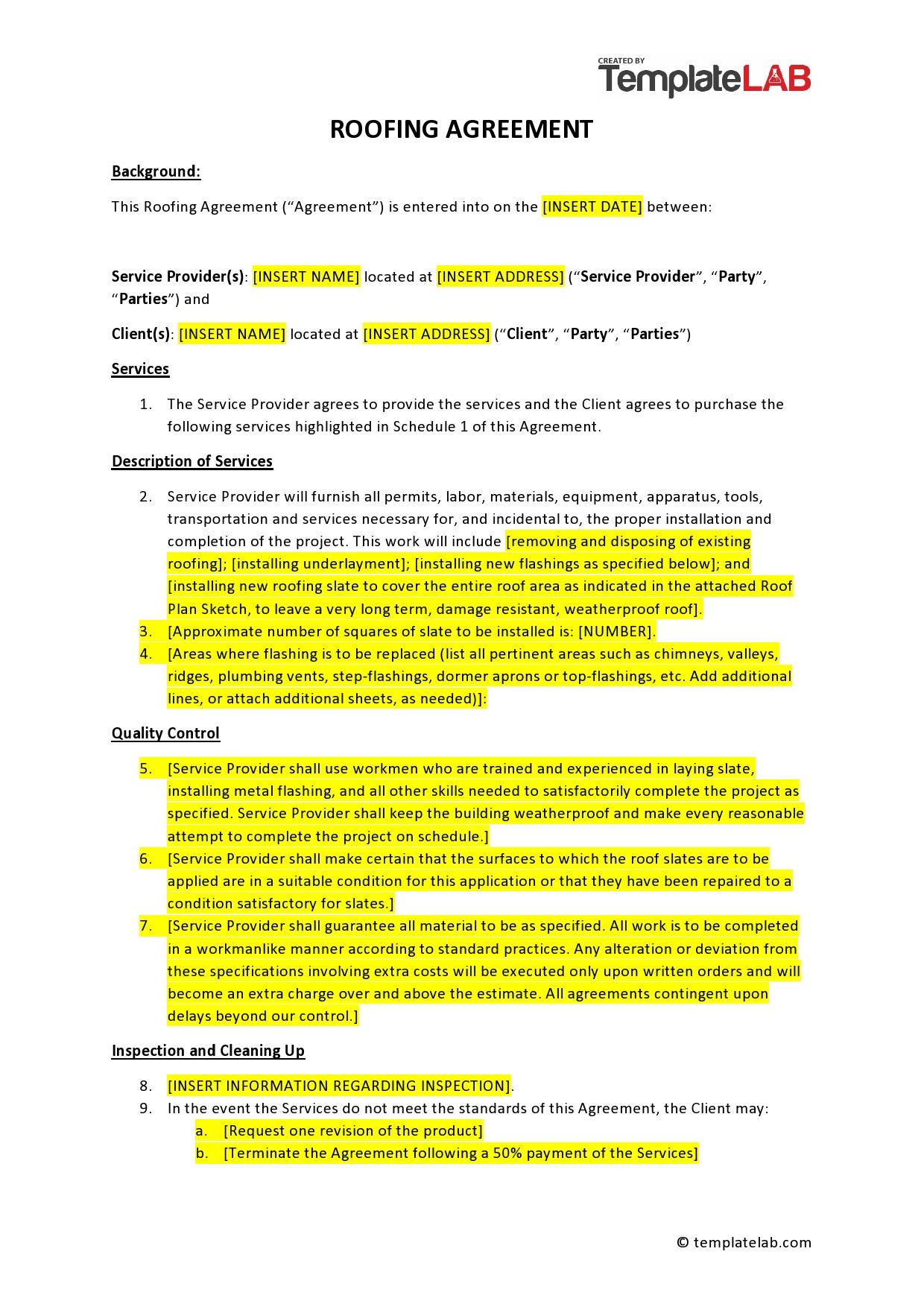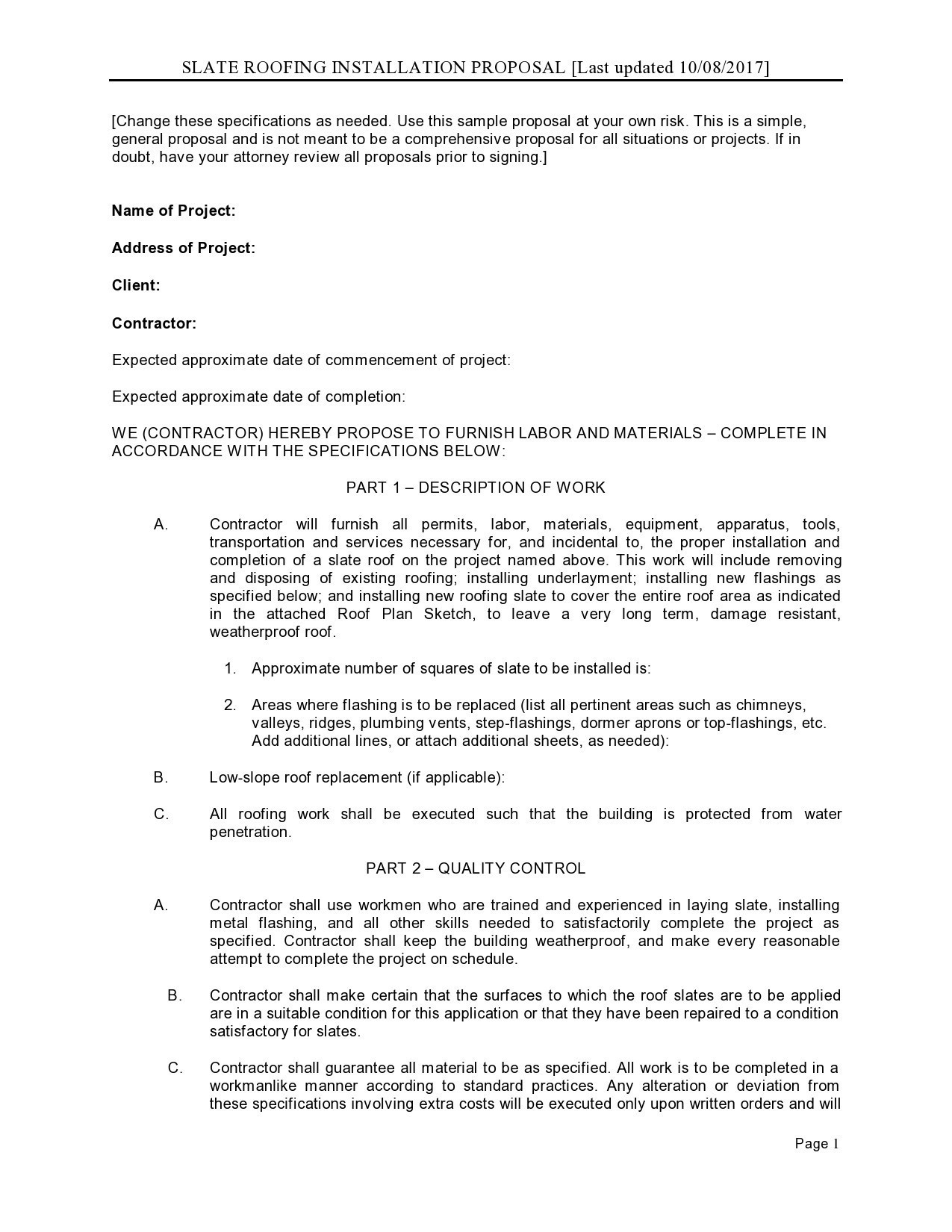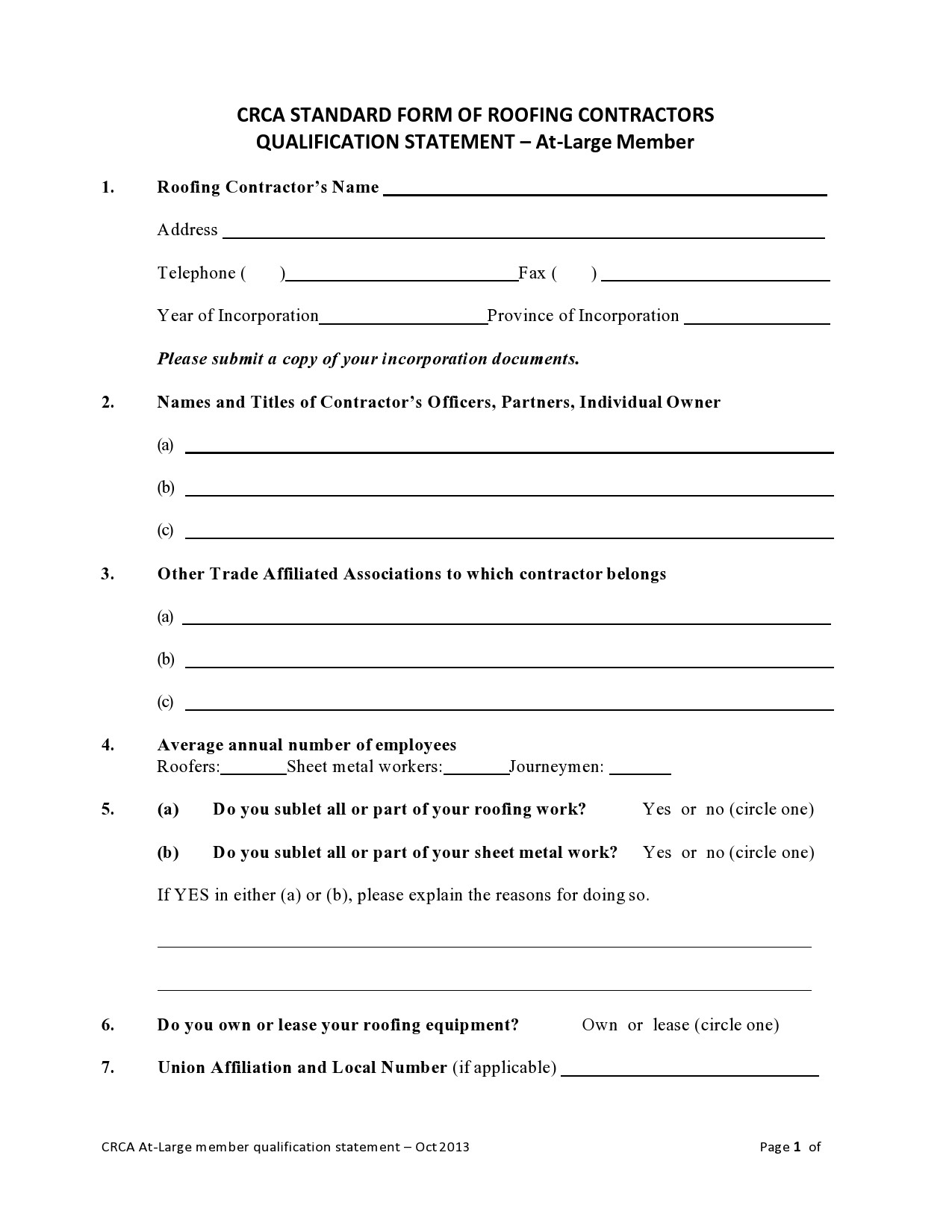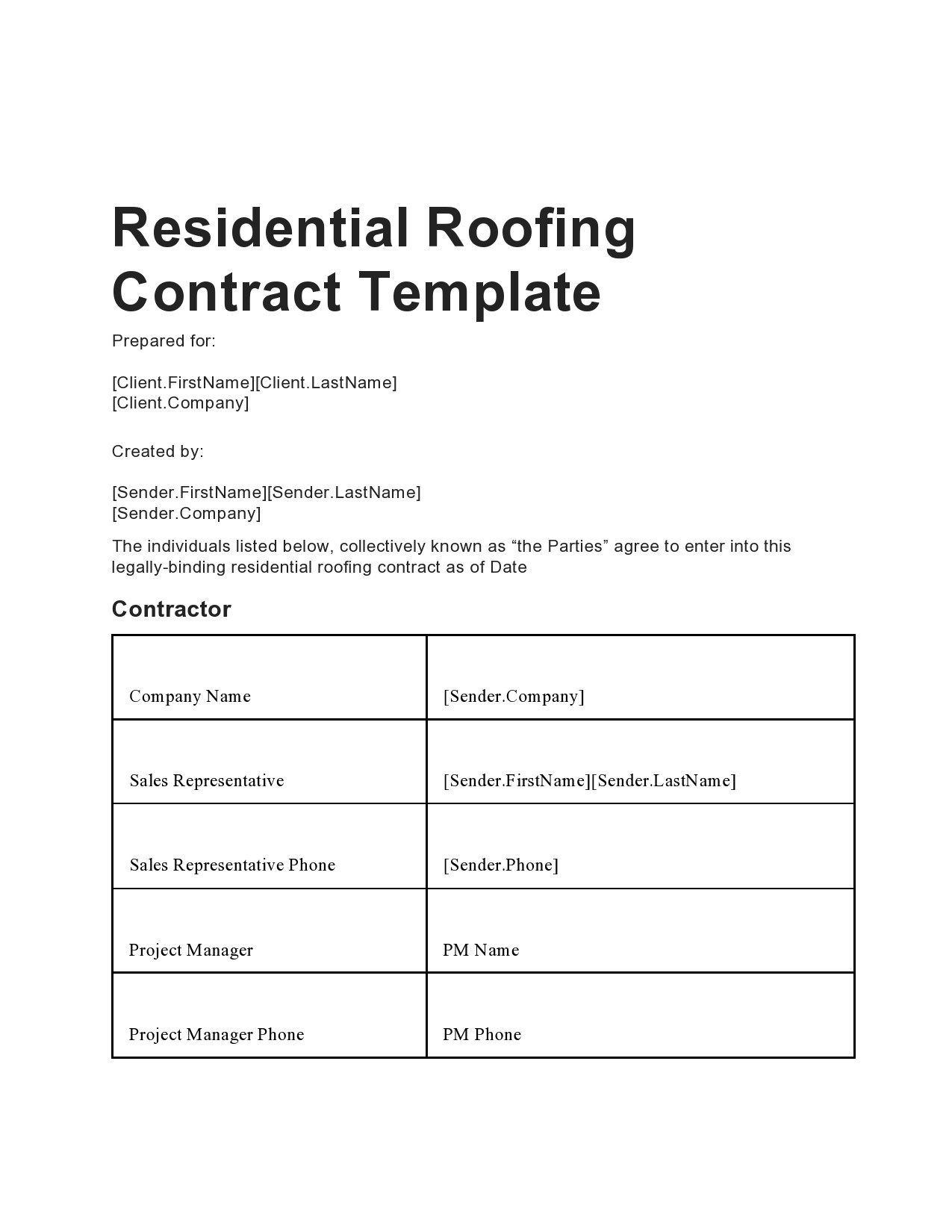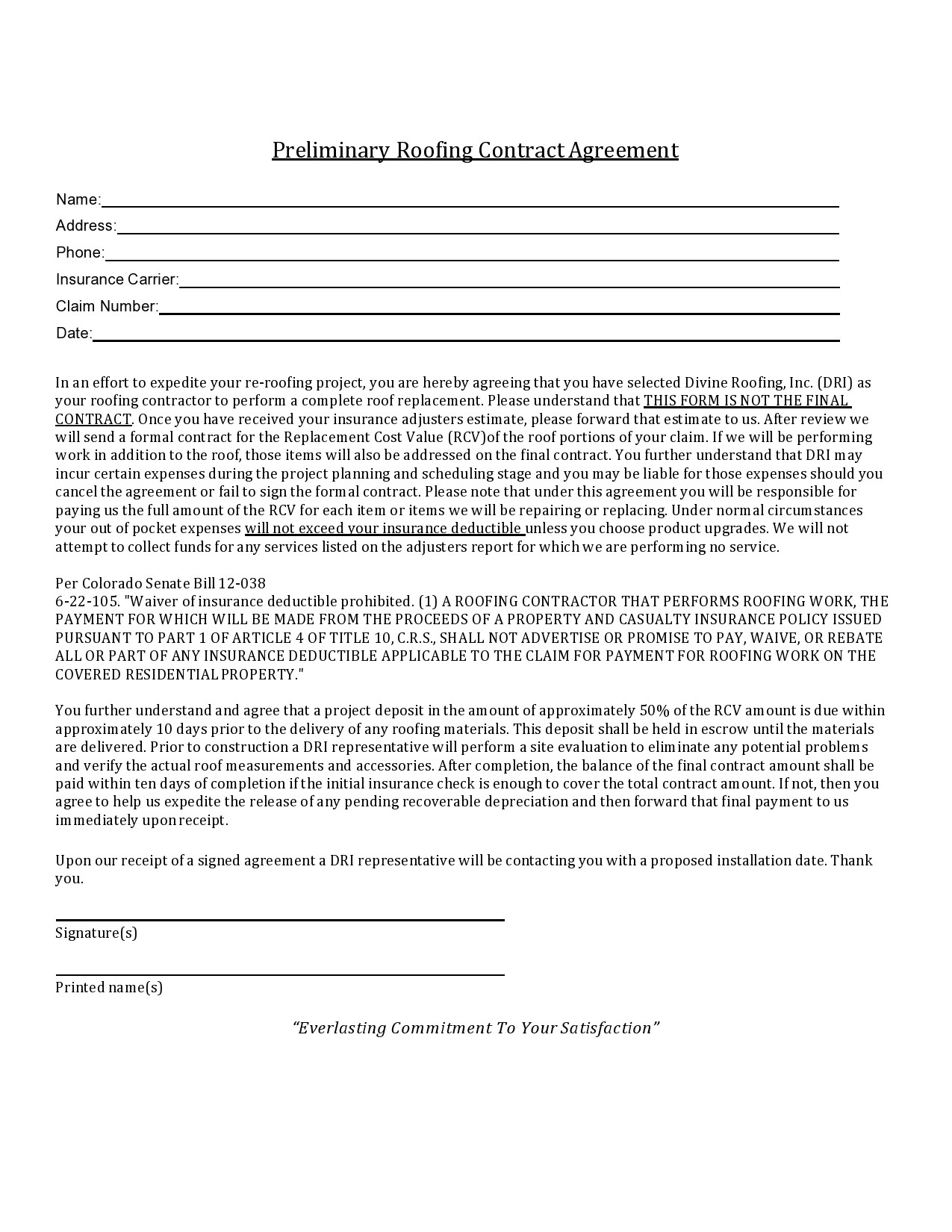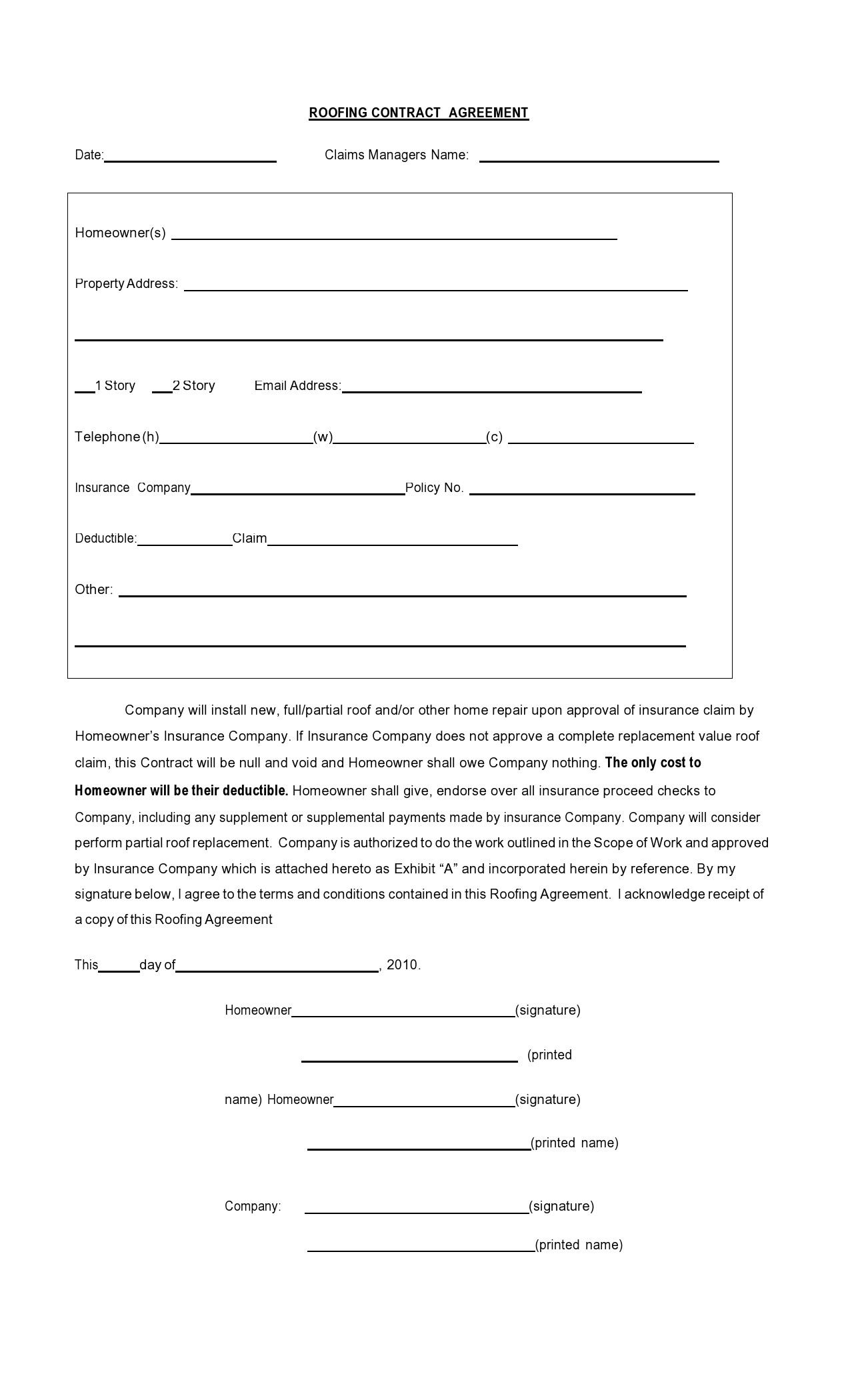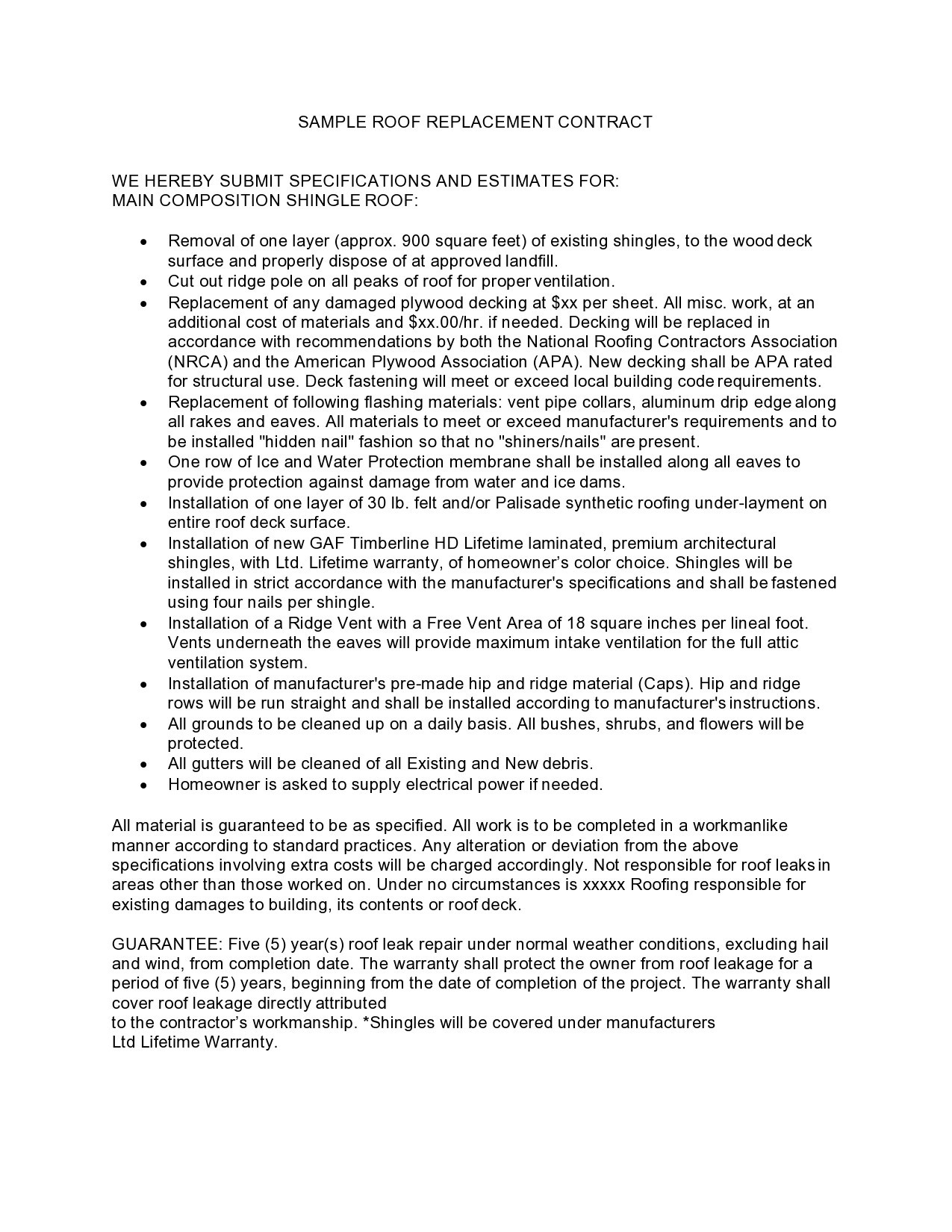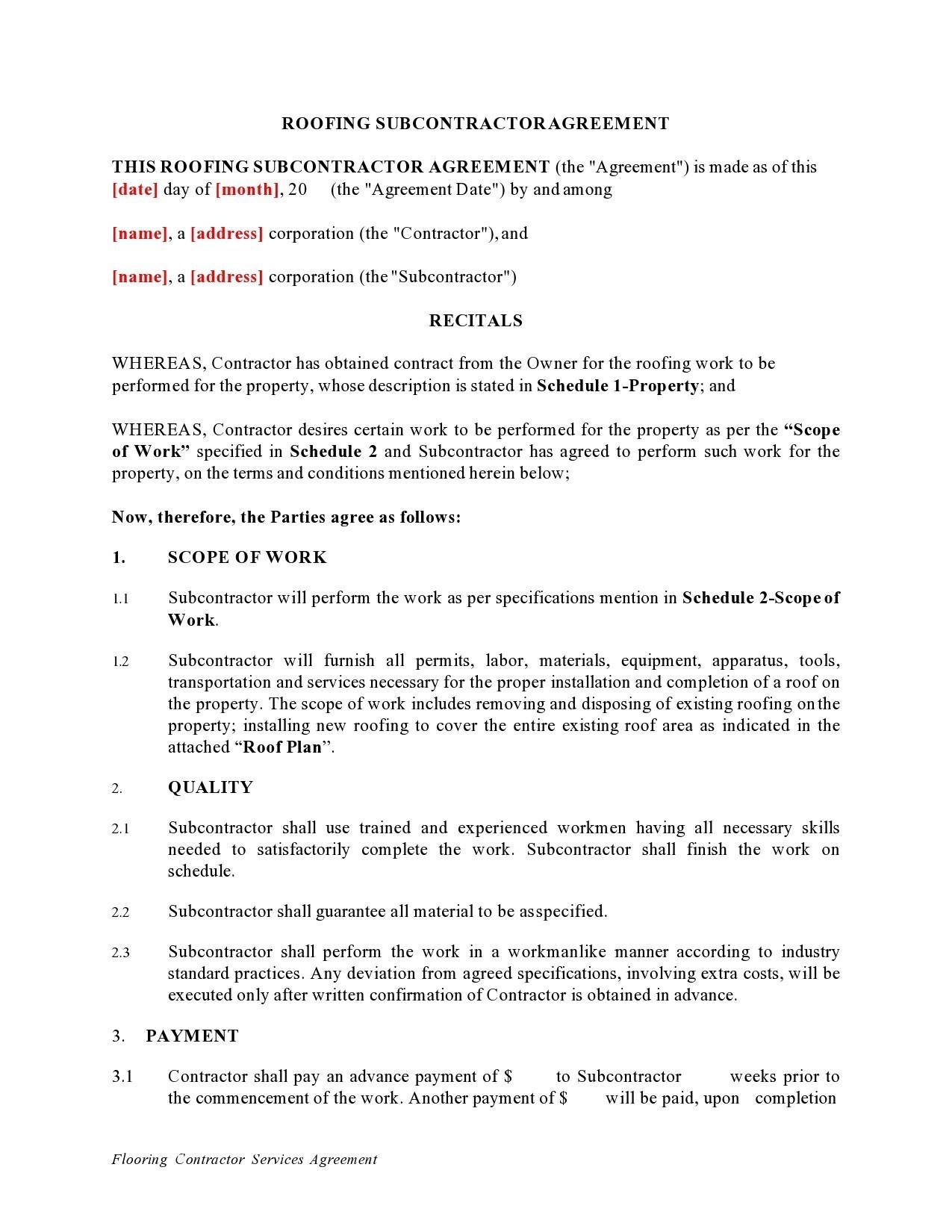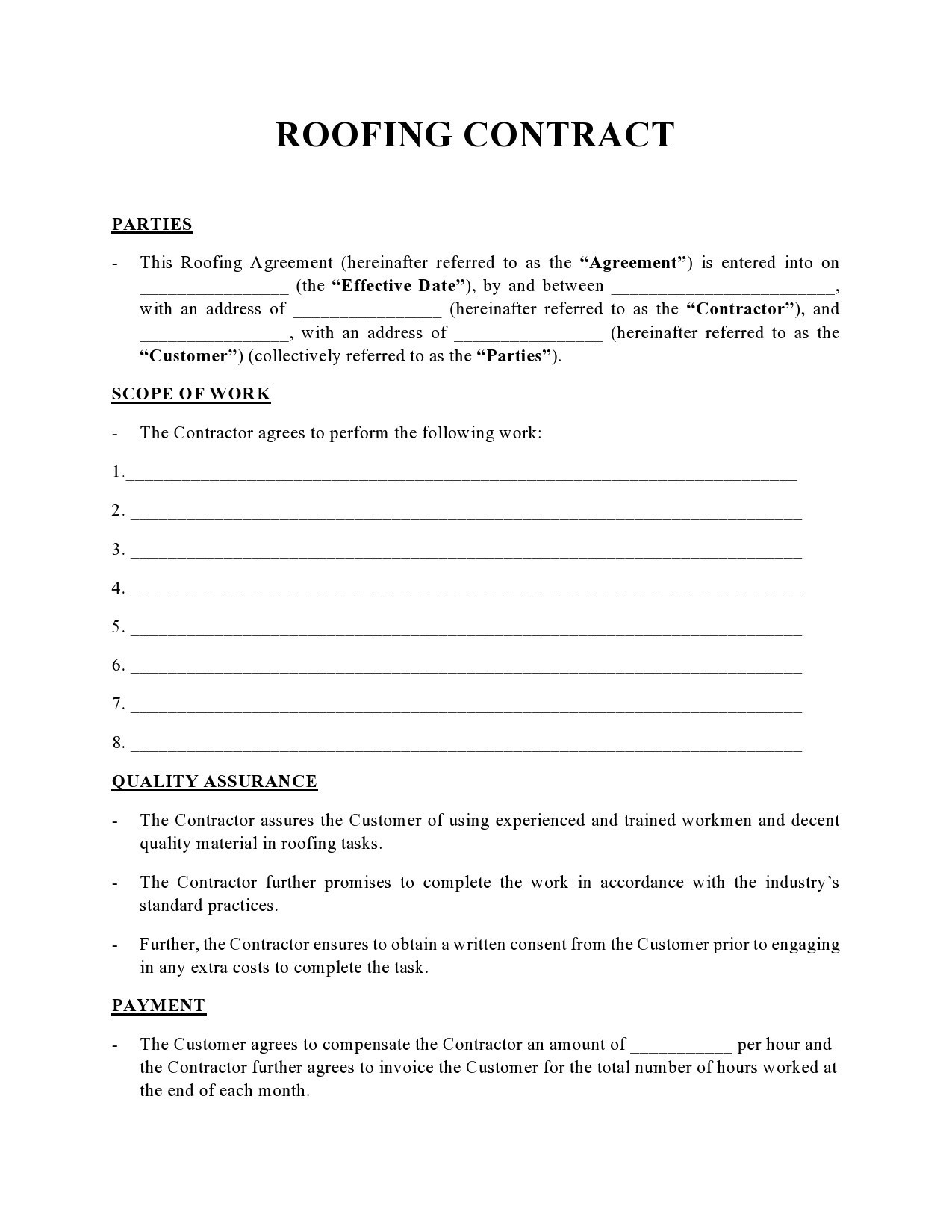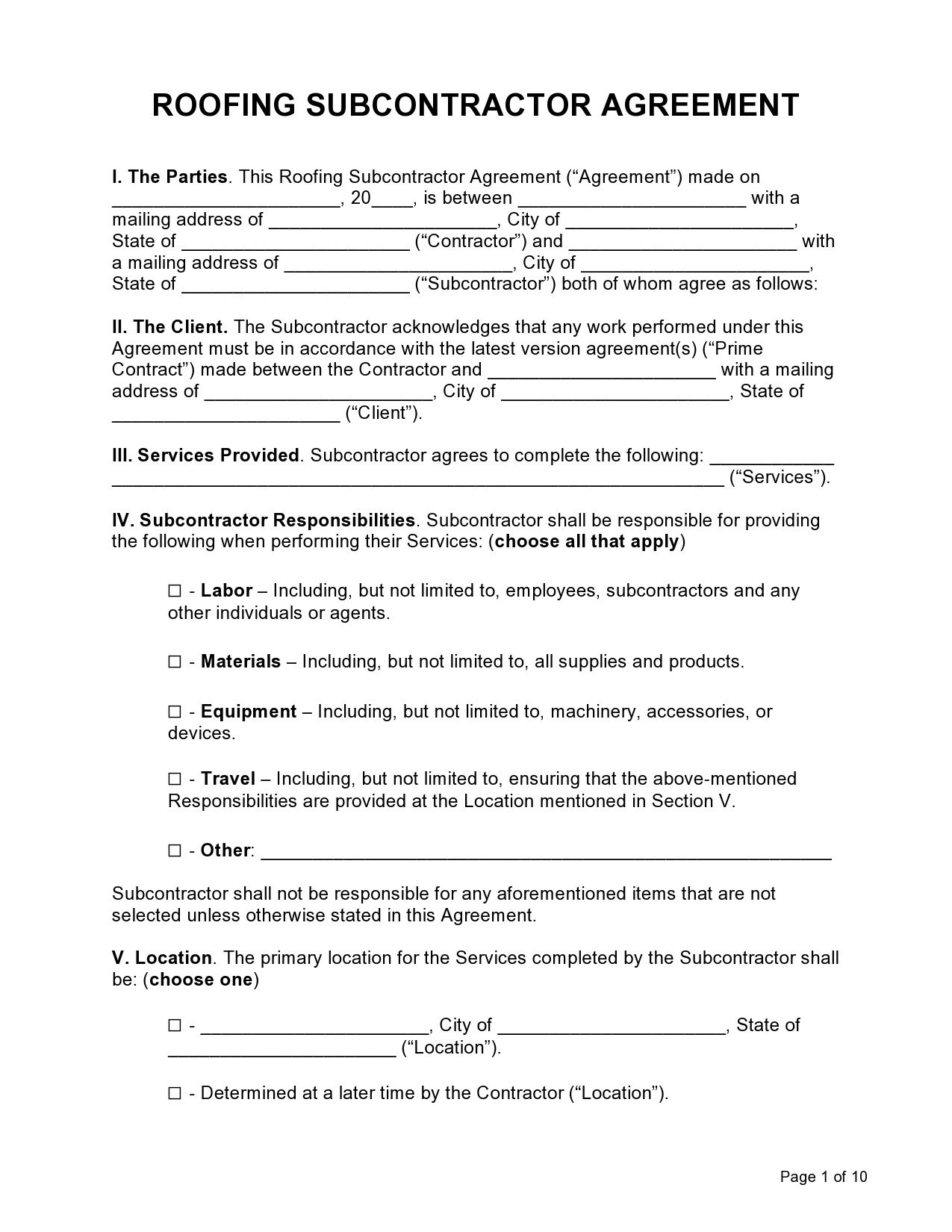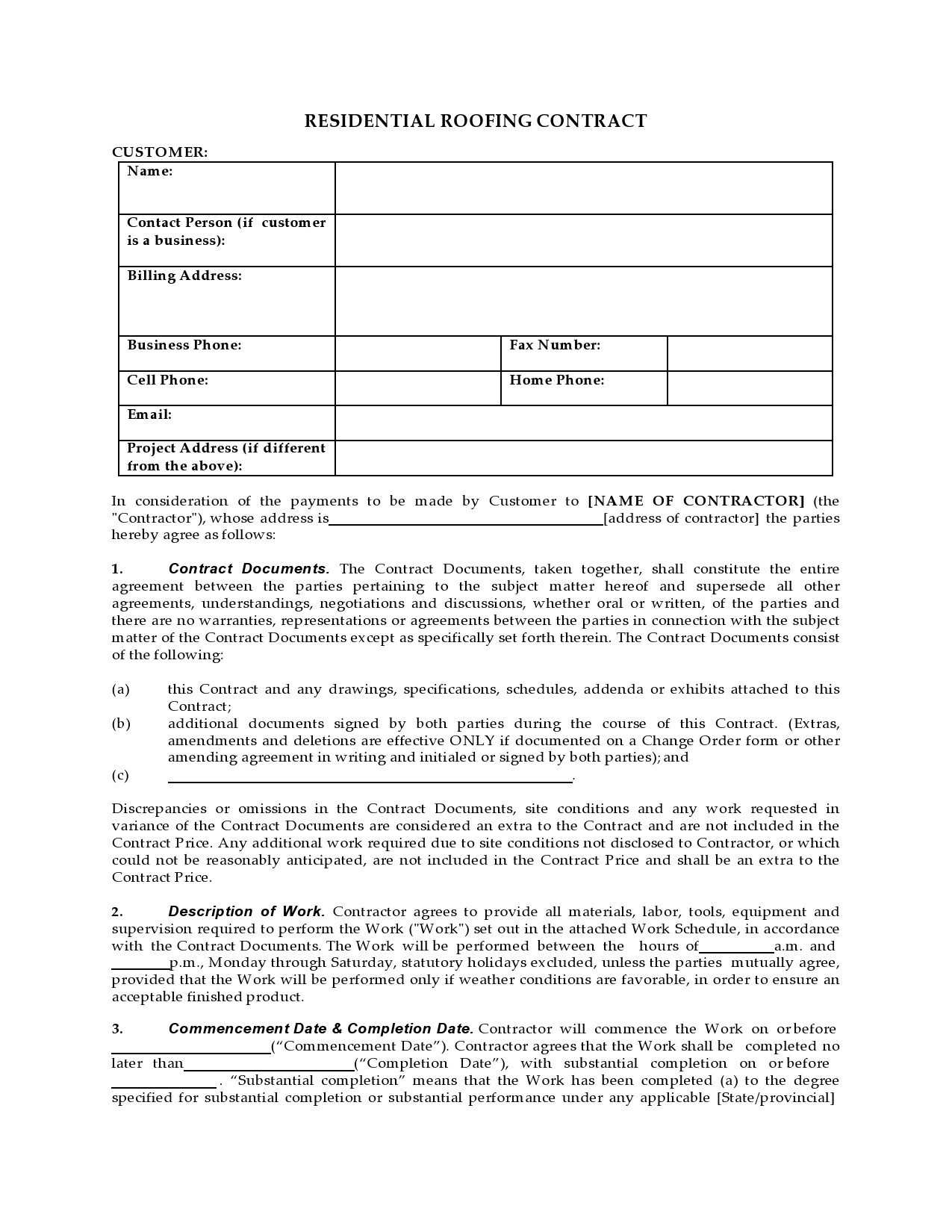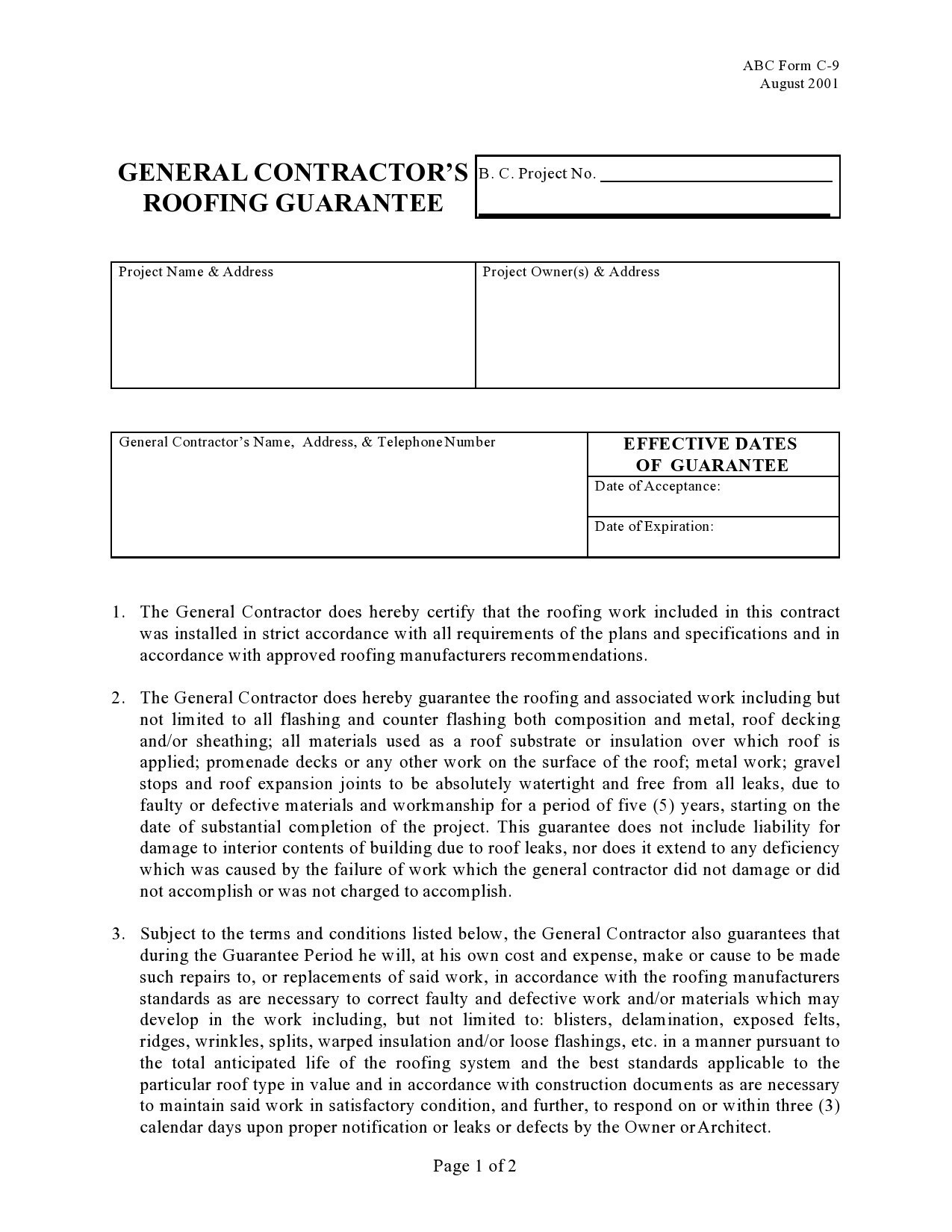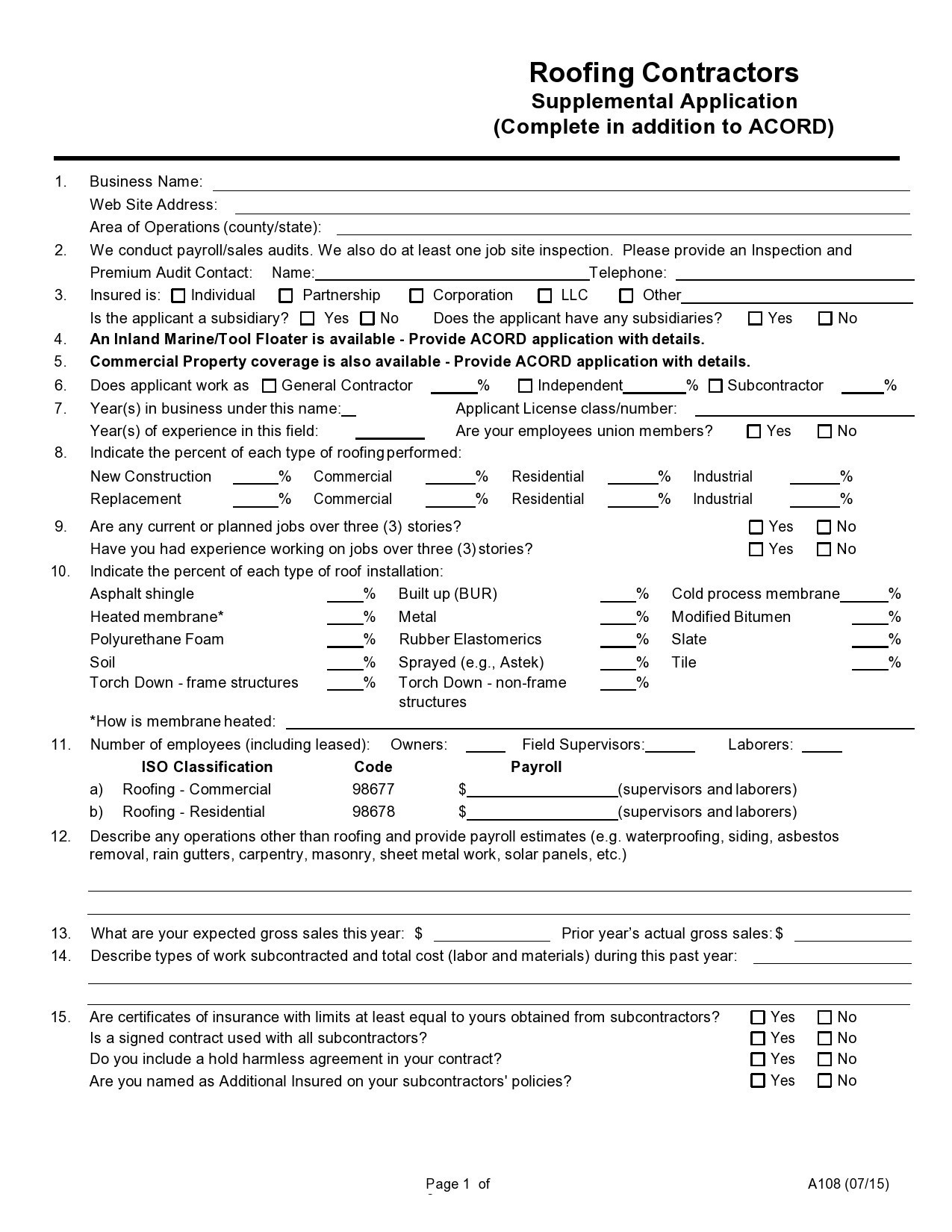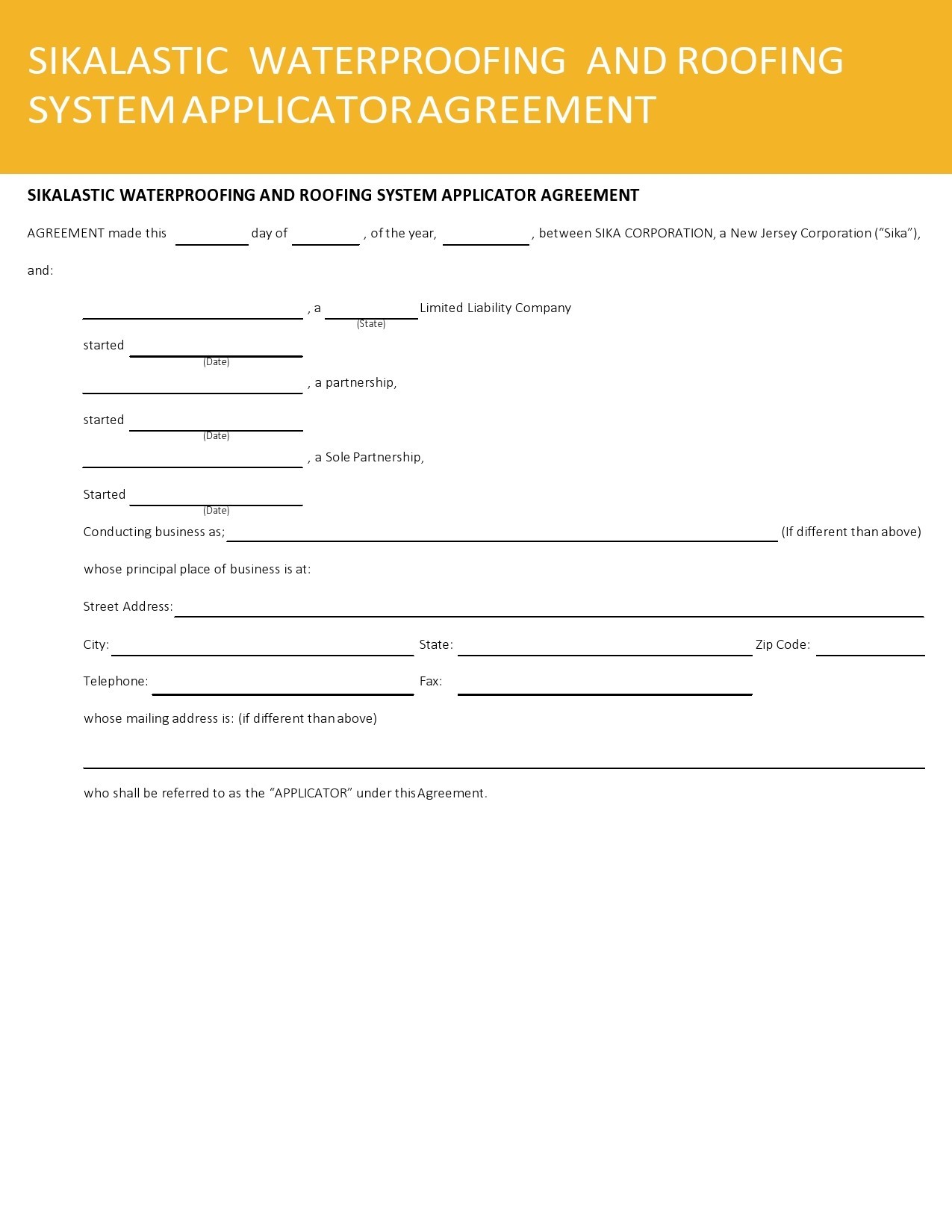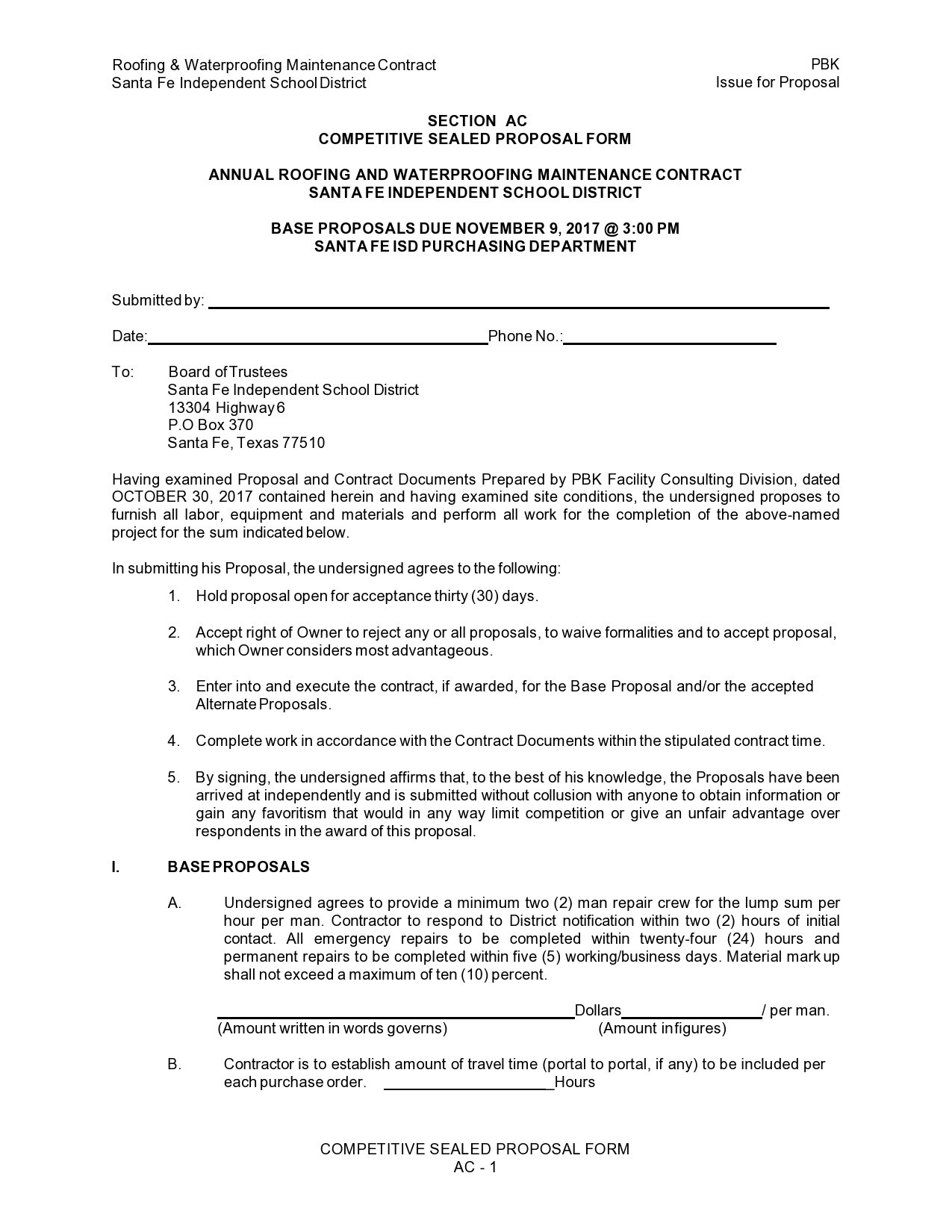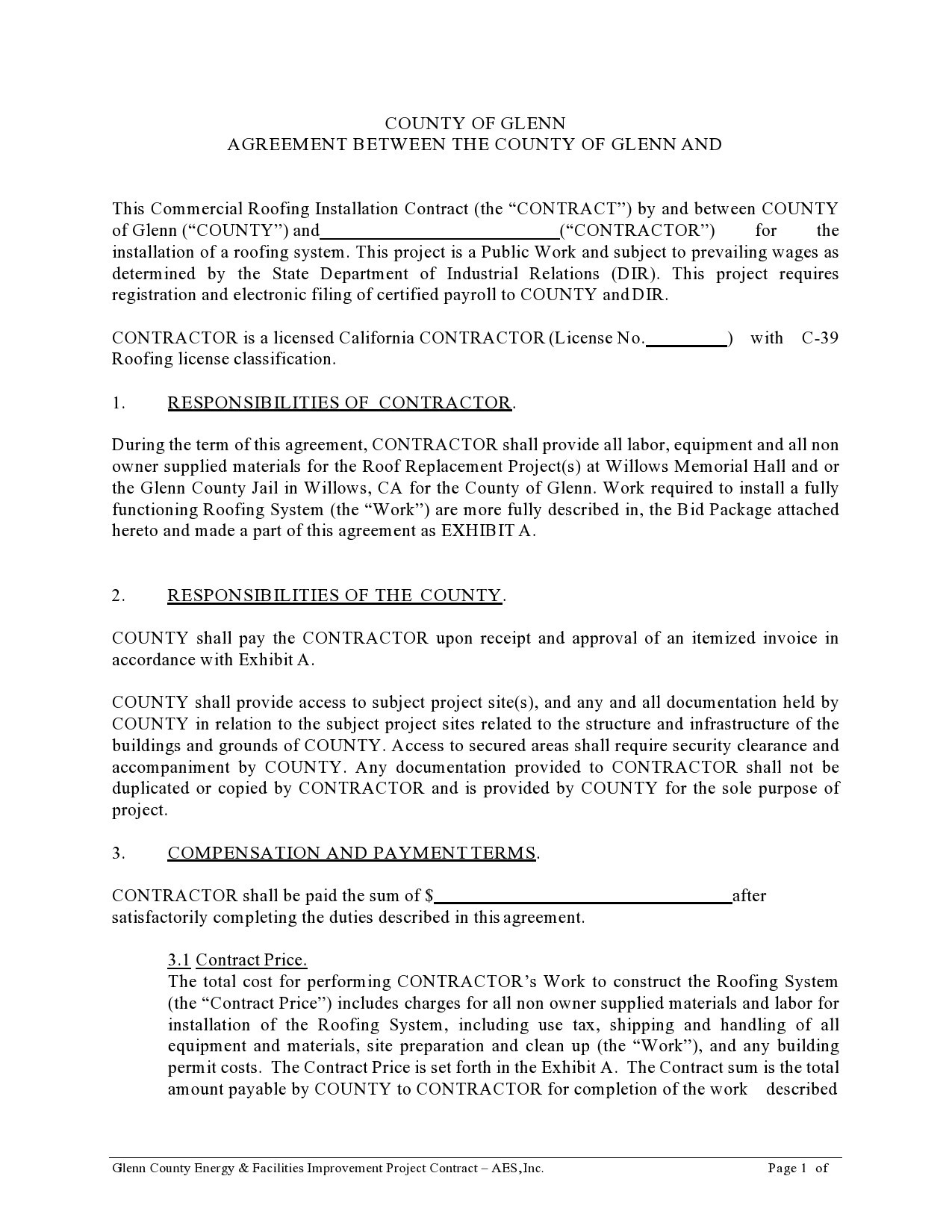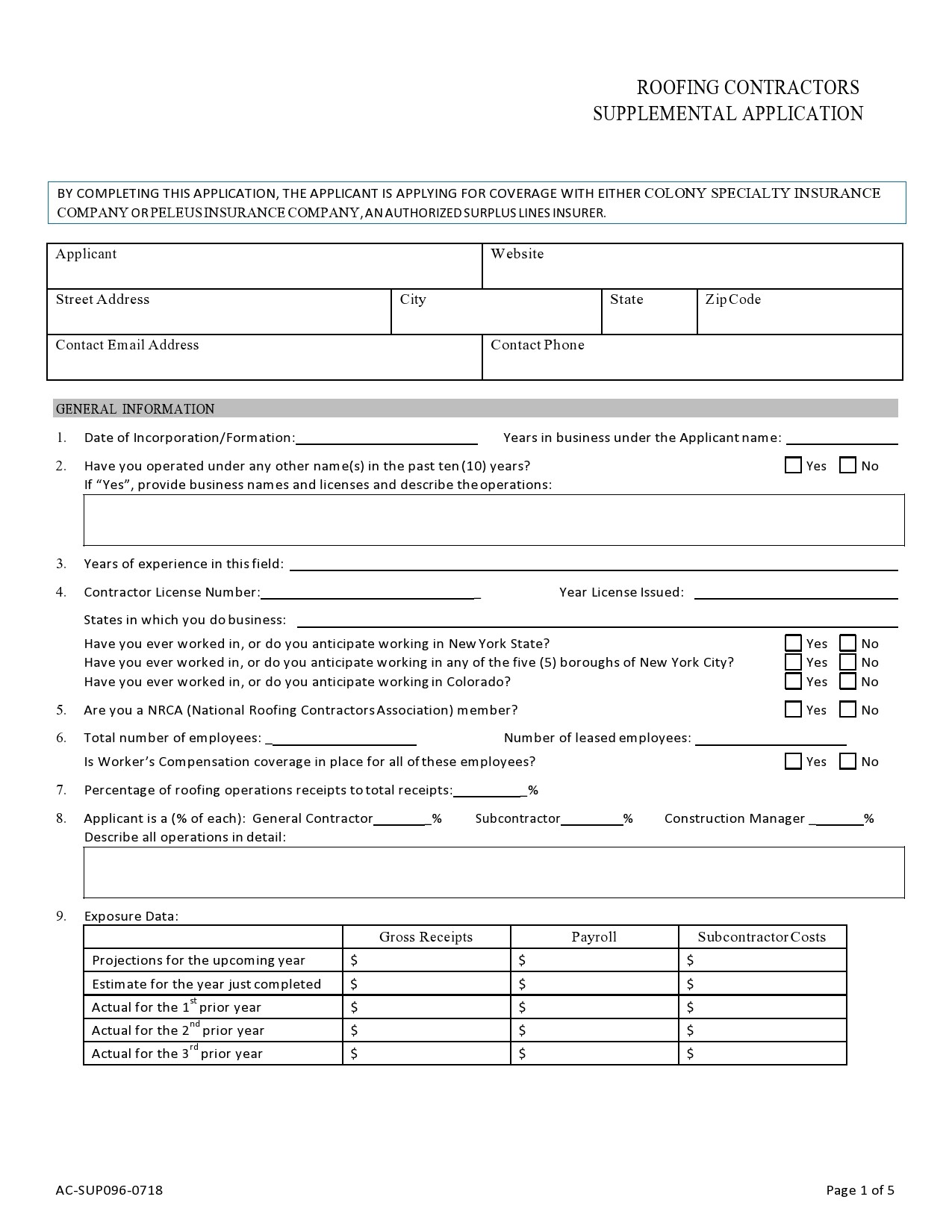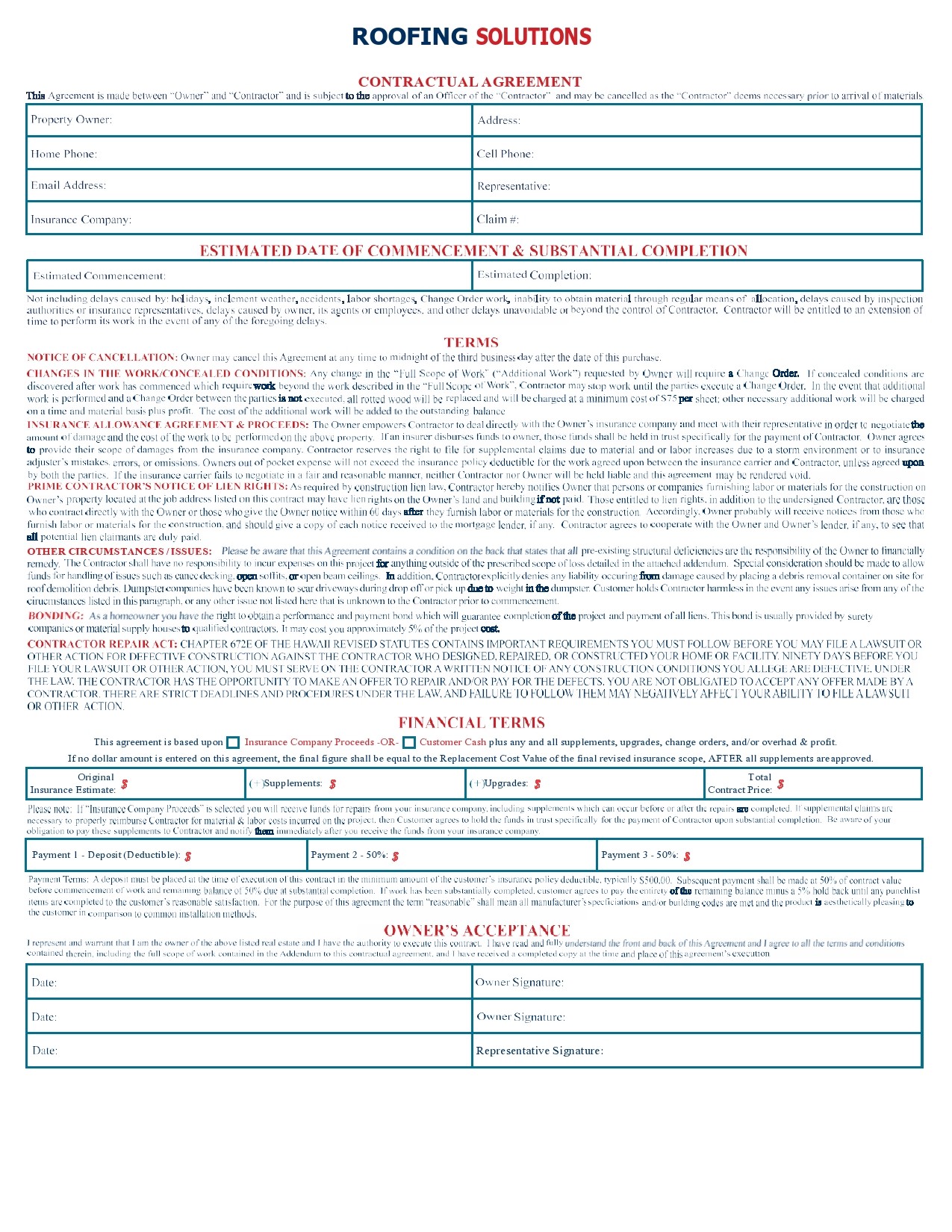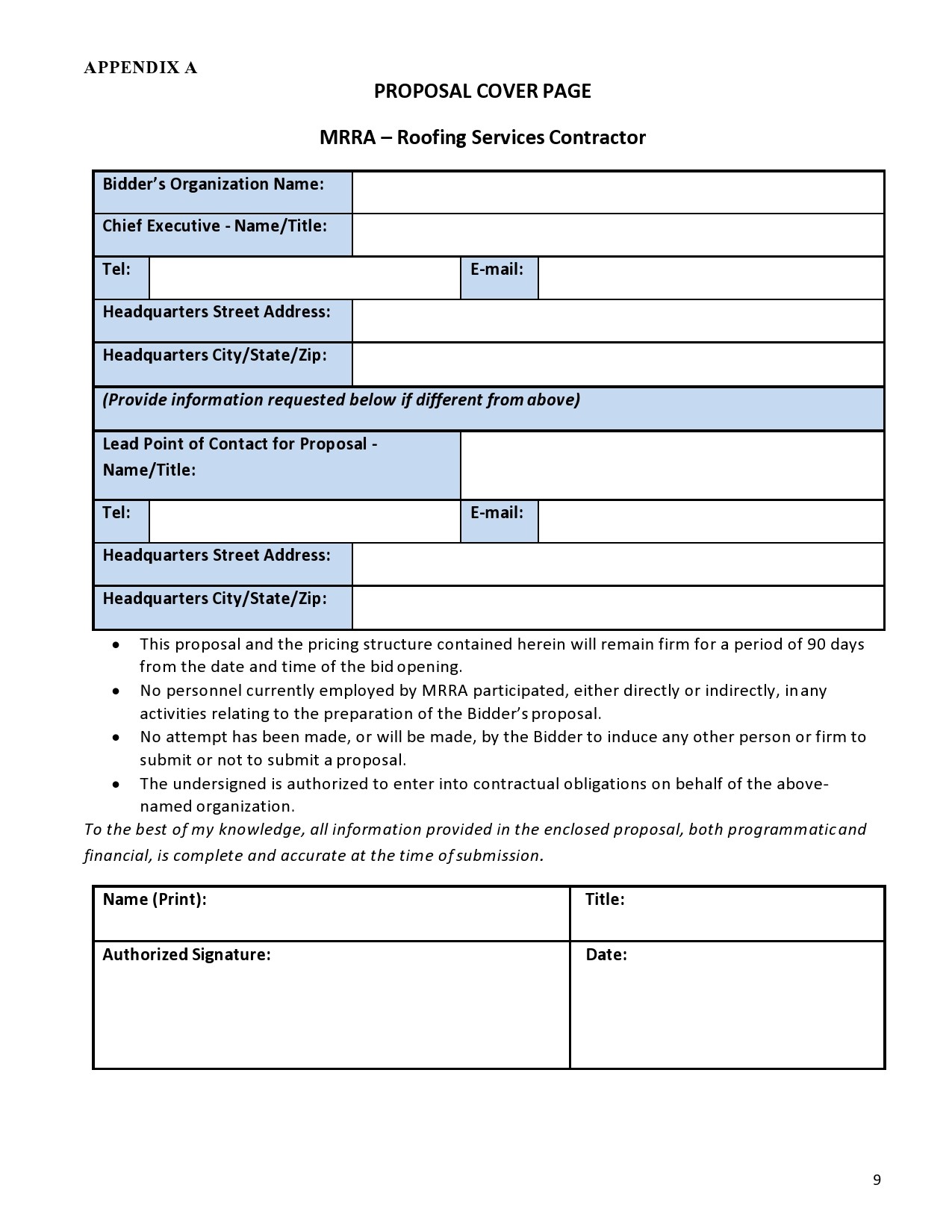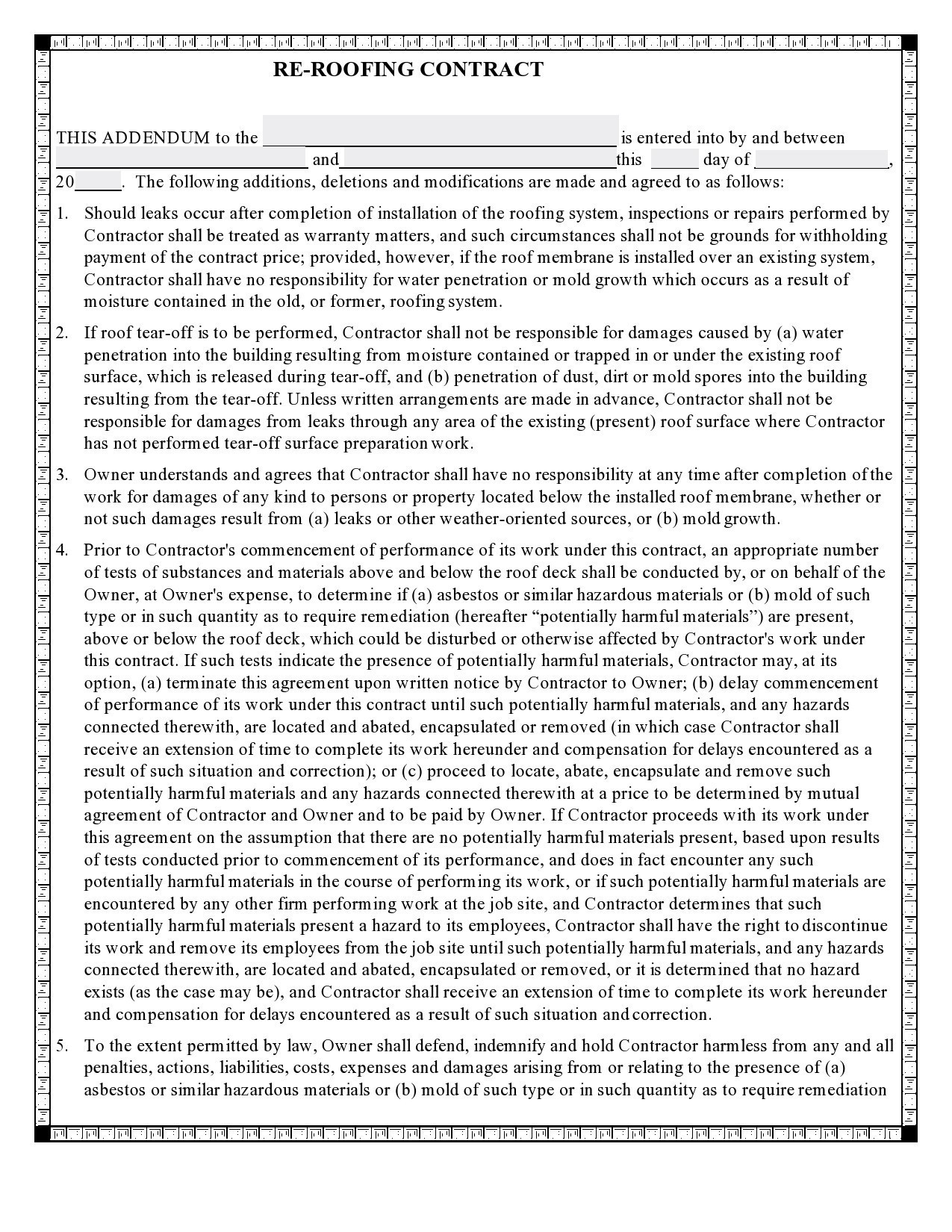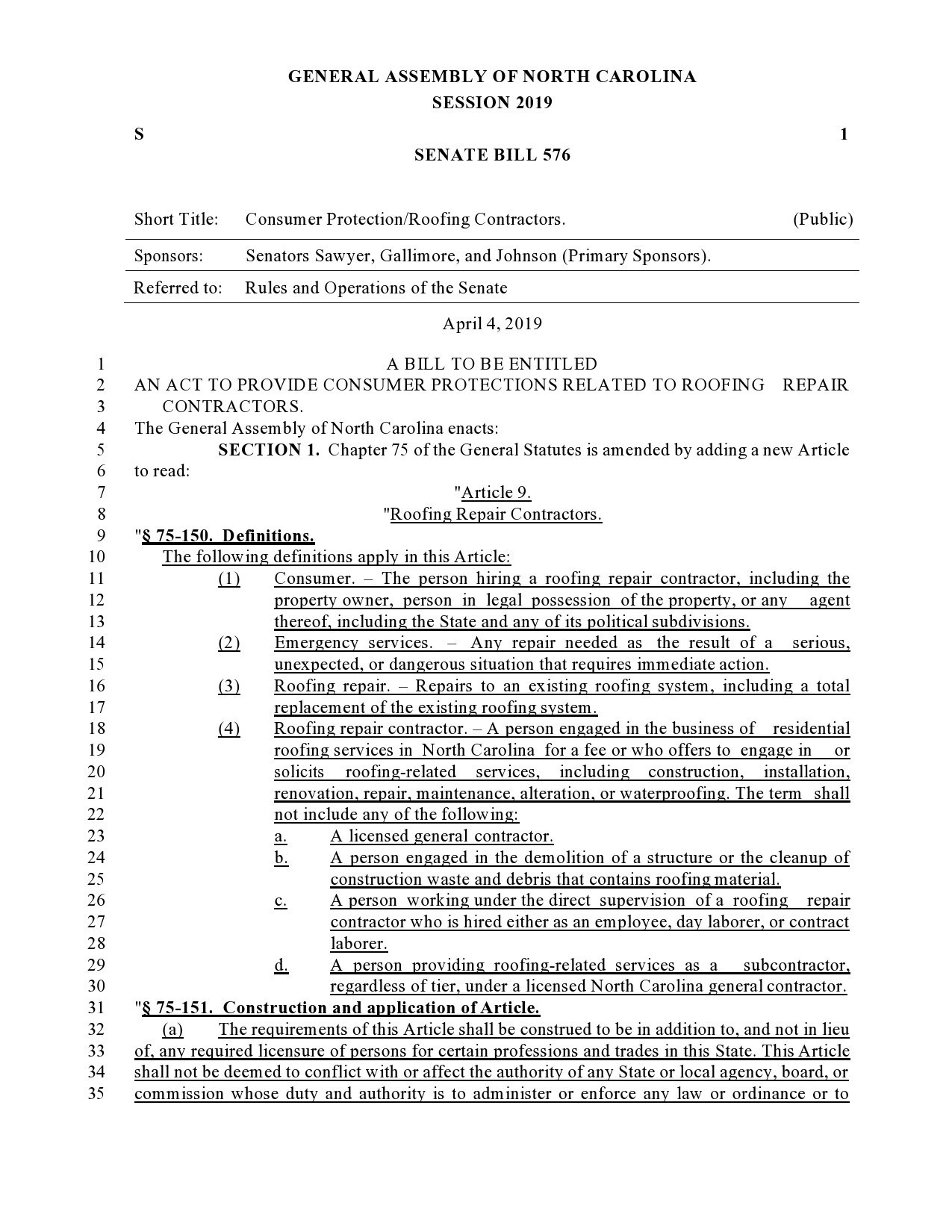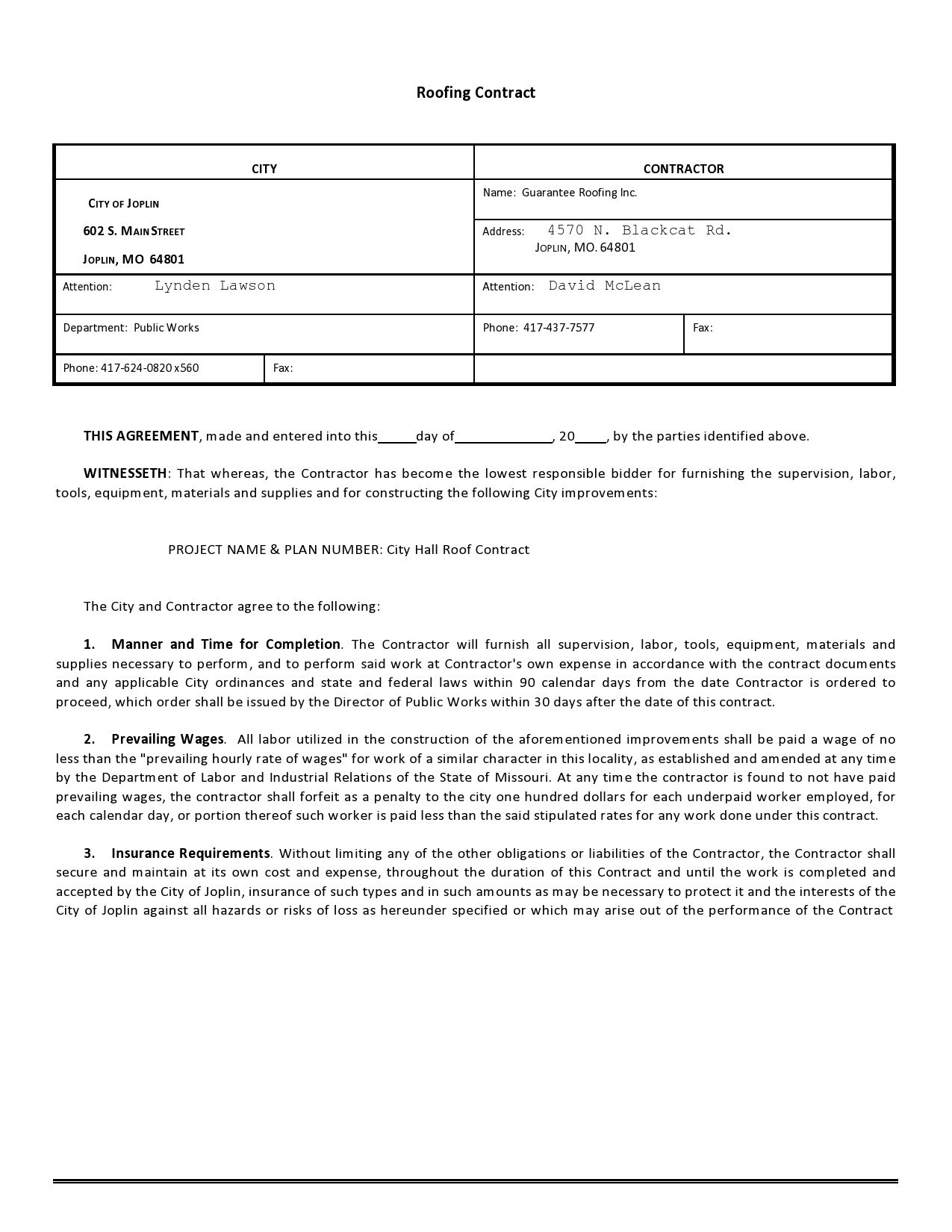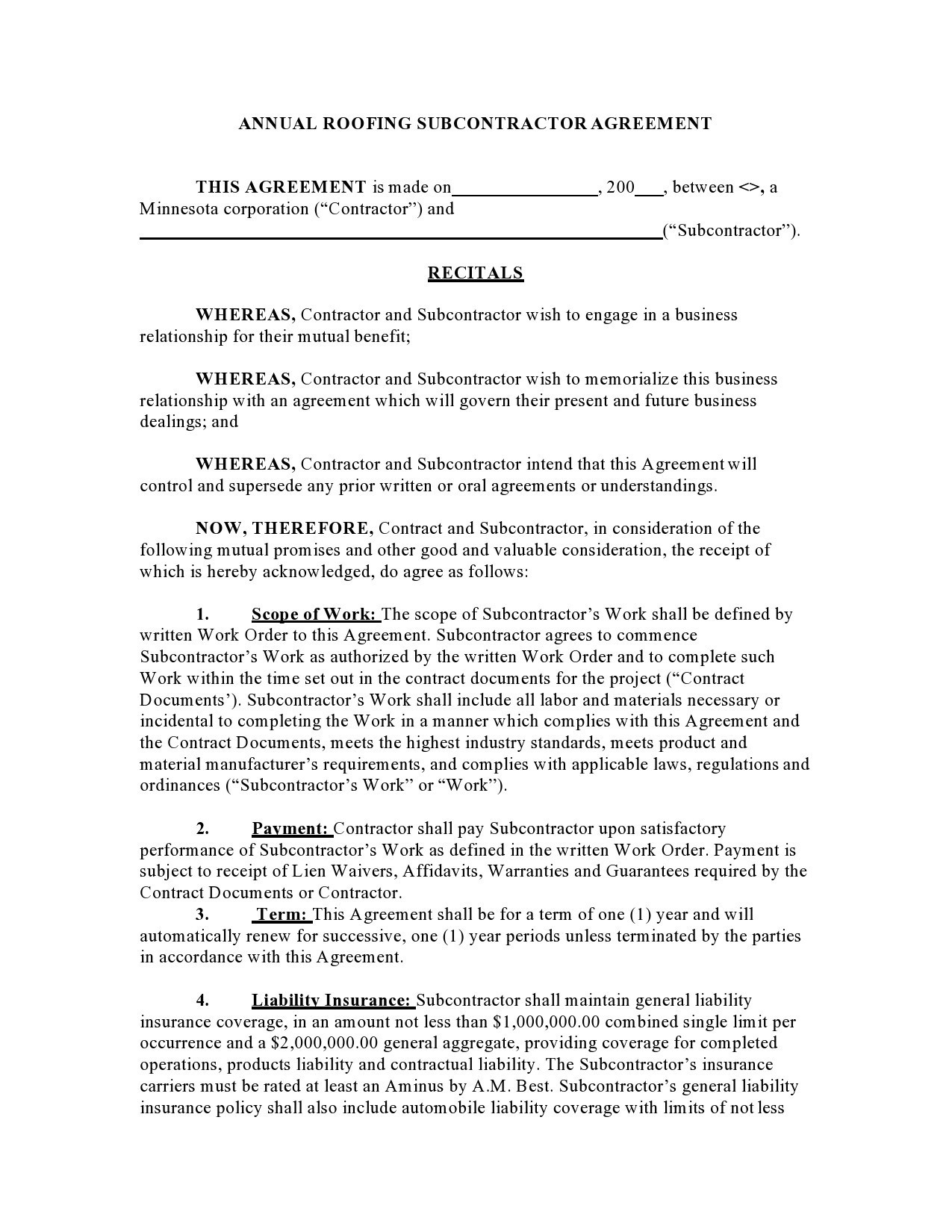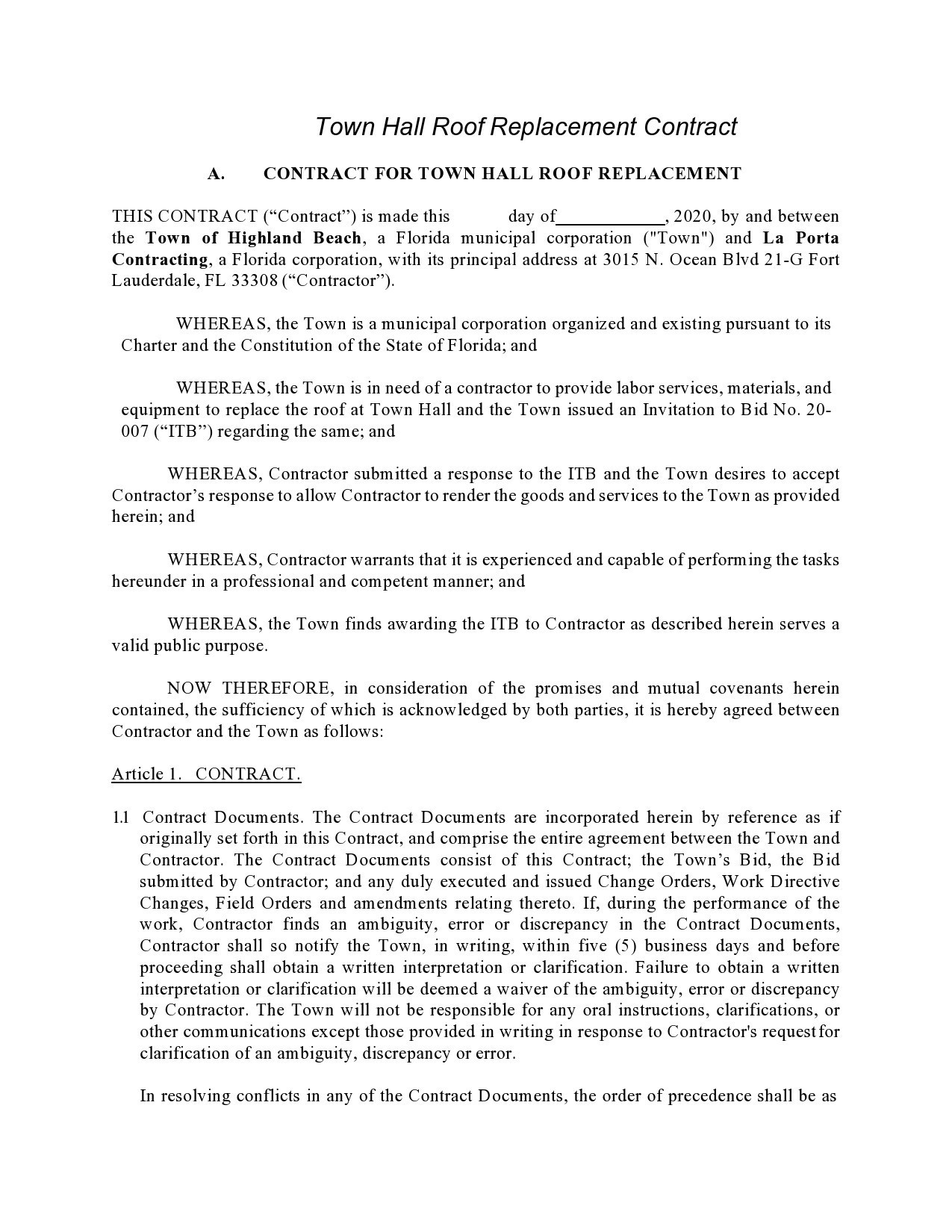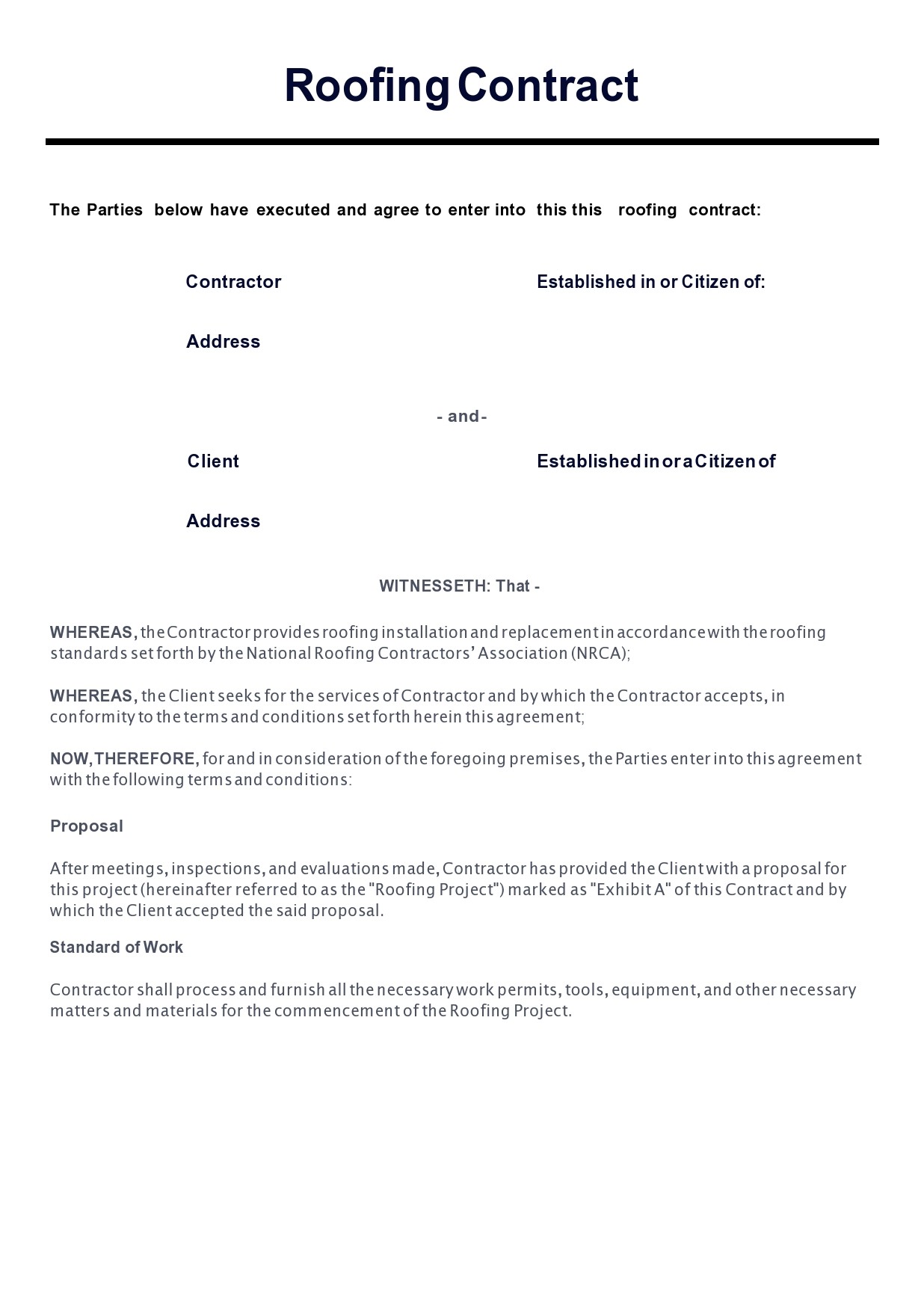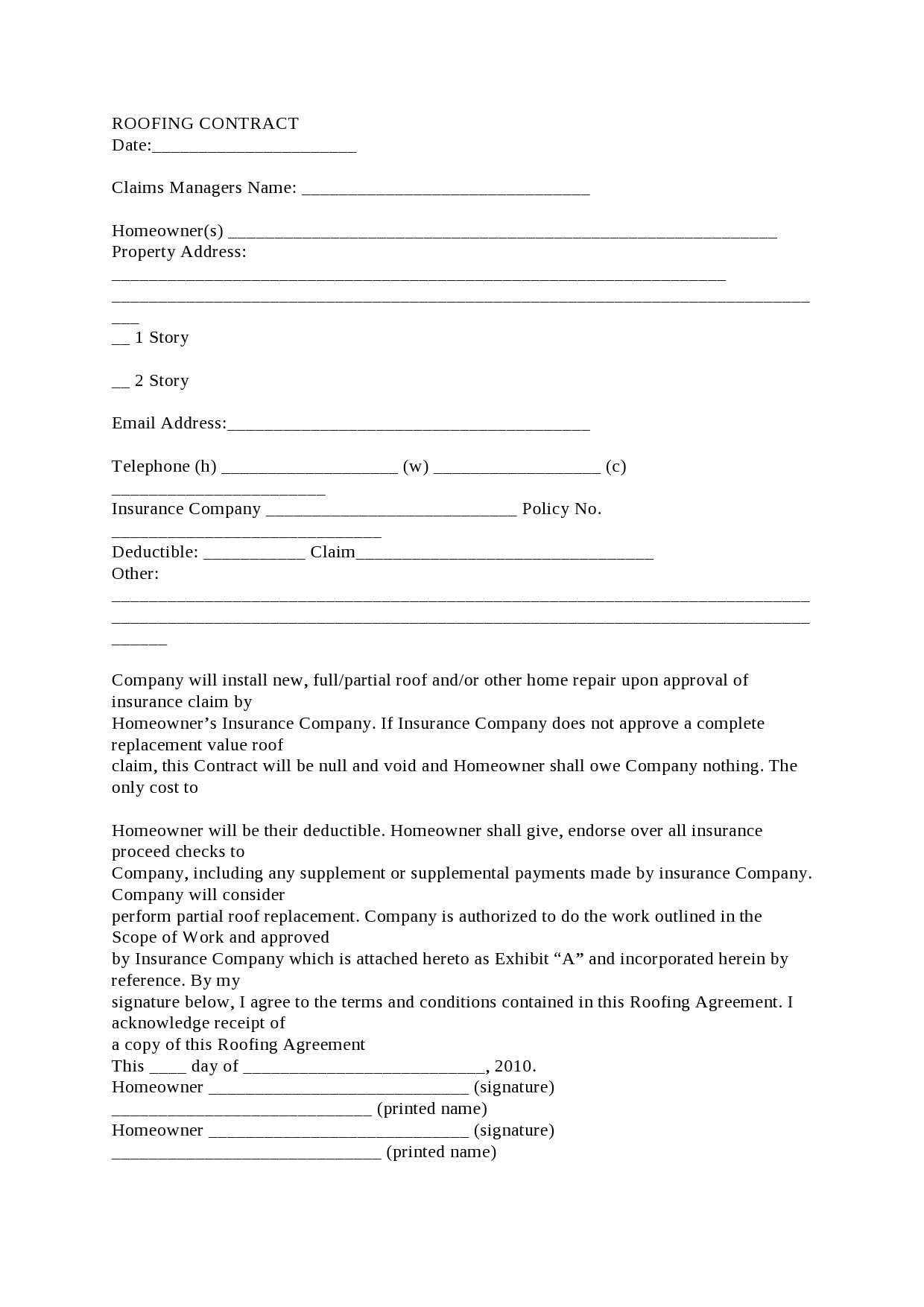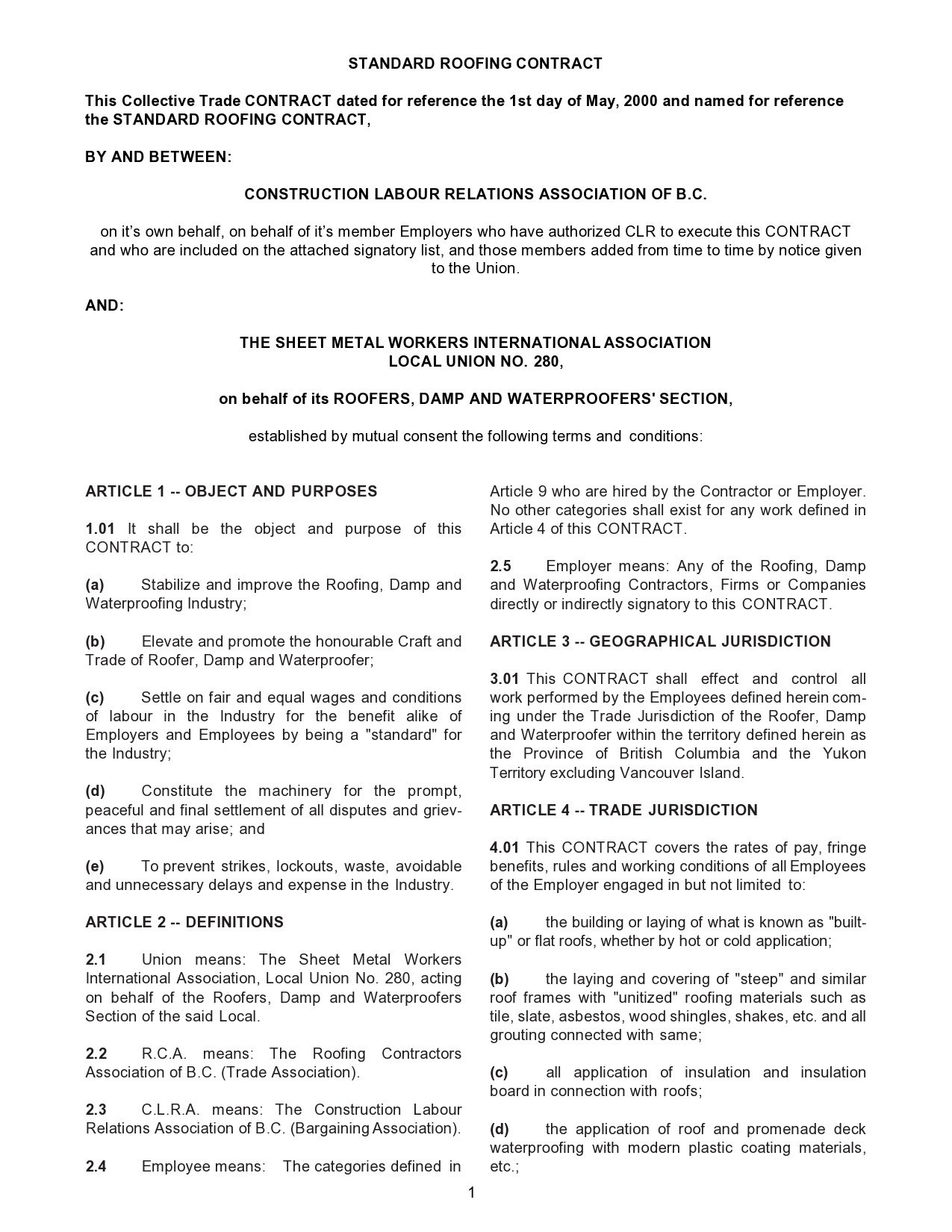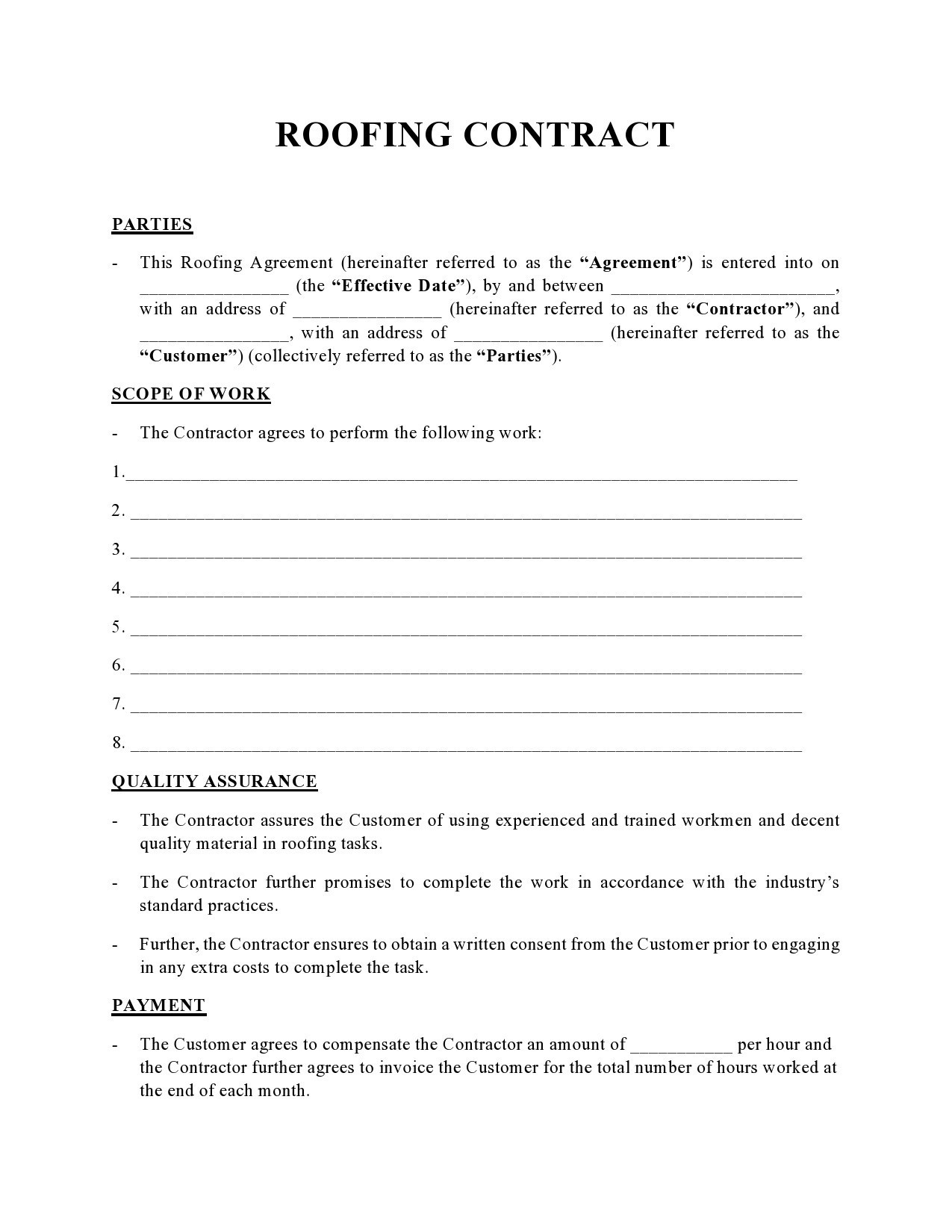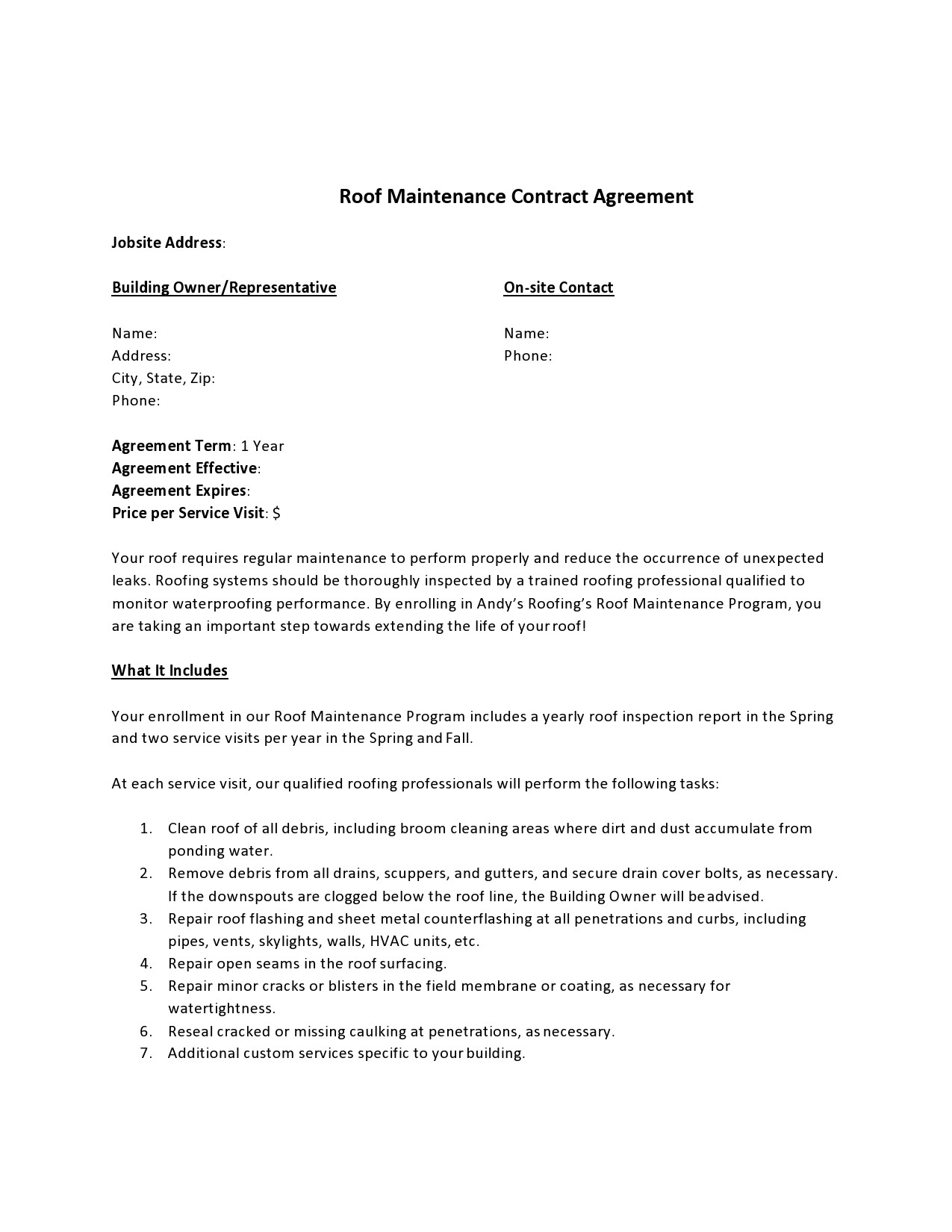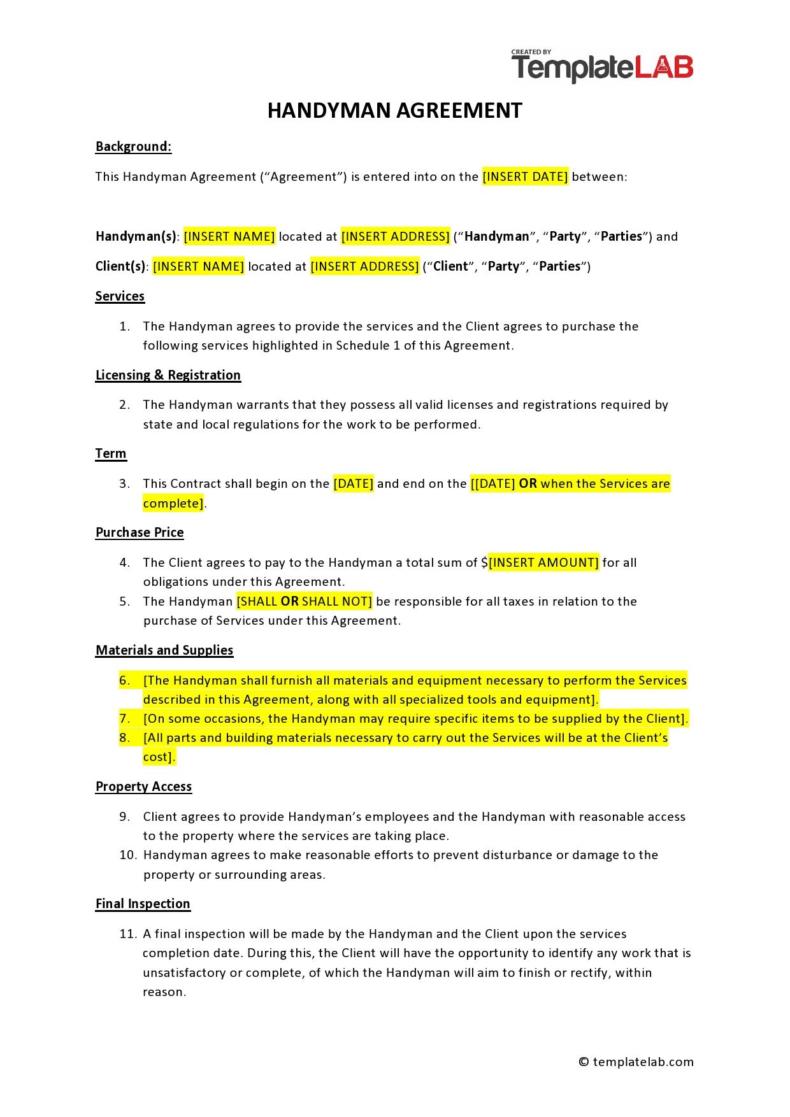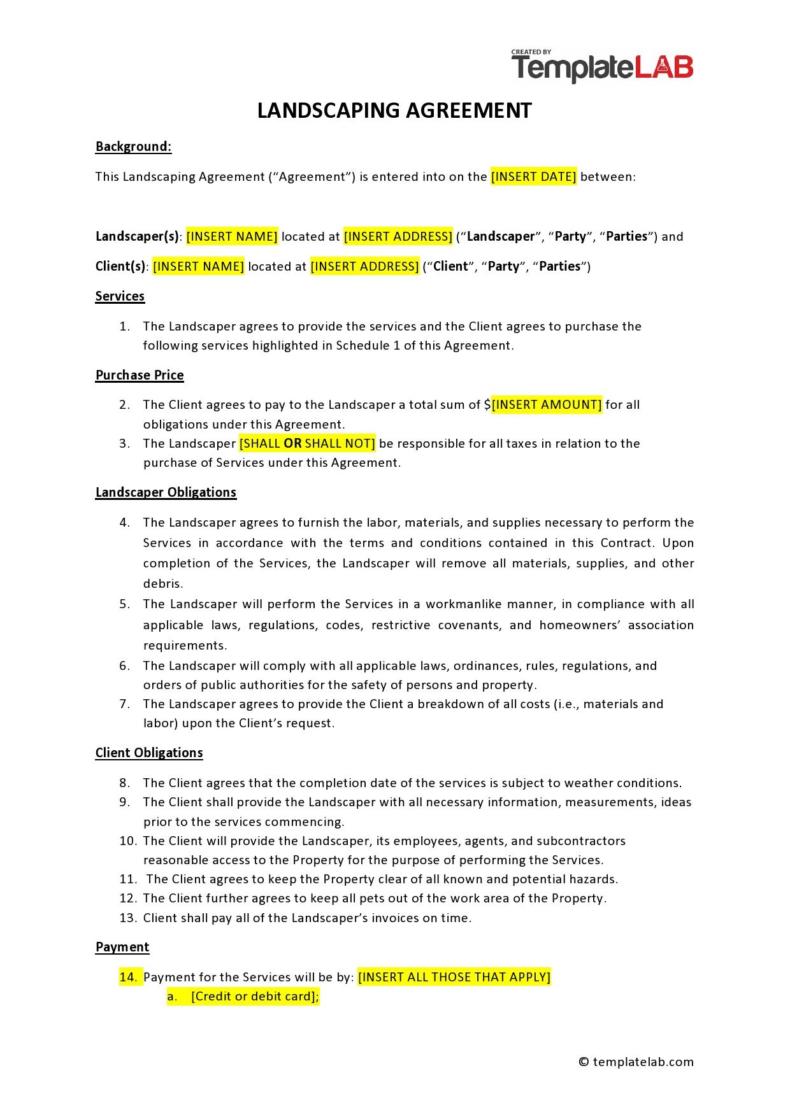Roofing repair or replacement projects are commonly undertaken by homeowners who want to ensure that their homes remain safe and secure. A roofing contract template needs to be comprehensive and professional, including all the details decided upon through negotiation between a roofing company and a homeowner. While experienced contractors may have complex contracts with a large amount of detail, the majority of roofing contracts are relatively straightforward.
Table of Contents
Roofing Contract Templates
What is a roofing contract?
In the case of a roof replacement contract or a roof repair contract, the roofing company makes an offer, and the homeowner decides to accept it or not. If it is accepted, the roofing company and the client sign a written residential roofing contract.
The residential roofing contract makes what is agreed to between a roofing company and a homeowner legally binding. It puts in writing all important details such as the scope of work, the duration of the job, materials to be used, deposit and payment schedule. Once it is signed by both parties, it is enforceable in a court of law.
Without a written contract, there is no safety net should either party default on the agreement. When there is a written contract, roofing companies can collect payment or defend against claims. A written roof replacement contract also gives clients the peace of mind that they are dealing with a legitimate business and a way to hold roofing contractors accountable if they fail to deliver.
Roofing Contract Samples
How do you negotiate a roof contract and write it?
When writing a roofing contract, it is important to include all the necessary details or conflict can occur between the roofing company and the client. It is possible to download a roofing contract template to make the job easier and save time. However, many templates offer very limited features.
It is important to use a roofing contract template that is professional in appearance, makes provision for necessary details and yet is simple and easy to customize. For example, it should include guarantee information common to residential roofing jobs that is easy to customize to suit a particular job.
Another way to find out more about what kind of details to include is to look at a sample roofing contract and see what should be in a roofing contract. The following details are necessary in the written contract.
- Roofing company details
A good roofing contract should contain basic details about the roofing company such as:
Registered name
Physical address
Contact details
License number
Workmen’s compensation number
Client details
The roofing contract should also include:
Name
Address
Tel number
Email address
Address where work will be done if the location is different to the client’s home address.
A license to operate
A good contractor will take all the steps necessary to make it safe to operate. Legitimate roofing contractors need a license to operate. If a contractor is working without the necessary license and a building commissioner visits the job site, the contractor will receive a stop-work order and this means the client will sit with an unfinished roof. A copy of the license should be attached to the contract or produced if a client asks to see it. - A certificate of insurance
Roofing contractors also need insurance to cover accidents on site. This protects clients from being liable for any injuries that occur on the property. A copy of the certificate of insurance should also be attached to the contract or produced if the client asks to see it. - Scope of work
The scope of work states exactly what needs to be done and what materials and labor are necessary to do the work. If an old roof is to be removed, the roofing contract should include details about the removal of the old roof and installation of the new roof. - Job duration
Most roofing jobs do not take too long but as they are inconvenient for the homeowners, it is important for them to know how long they will take. Job duration can vary considerably depending on the time of the year, what work is required and the workload of the contractor.
Experienced roofing companies will be able to give a realistic time estimate. Once started, a job should not be interrupted without a very good reason, such as inclement weather conditions. - Procedures
A standard roofing contract will usually include working hours, the installation method, safety precautions and a detailed schedule of when everything will happen. For example, some shingles can be easily installed with four nails but if a client is paying more for a wind-resistance limited warranty, a six-nail installation may be necessary and this should be specified in the contract. - Materials
The estimate must include all the materials and services included in the scope of work. Materials will include shingles and accessory products such as leak barriers, vents etc. It is important to state the brand, official product name, type, color and price of products as well as reference to any manufacturer warranties. - Itemized list
An itemized list helps clients to know exactly what they are paying for every aspect of a project, from material costs to labor. This enables them to compare the costs of items given by different companies that they may not have known about without the breakdown. Roofing contract templates will often include a pricing table that allows roofing contractors to provide clients with detailed project costs. - Waste removal
Roofing is a messy job and a roofing contract should state how roofing companies plan to clean up the mess before they leave. If they do not offer cleanup services, homeowners will have to cover the costs. - Deposit
Any standard roofing contact will specify clearly how and when clients need to make payments. For example, deposit requirements will vary from contractor to contractor. An initial deposit, together with progress payments, should not equal more than 75% of the total job. There should never be an expectation of an upfront payment to cover the entire job. - Payment methods and due dates
It is important to state what is required from the client in terms of deposits and any other payments due as well as applicable taxes, timelines for each payment and the actions that will be taken if payment is not made at the required times. Many roofing contractors require a second payment once materials are delivered whilst others may only require a final payment upon completion of the job.
The law entitles a client to hold back 10% of the payment for 41 days if an error in workmanship is found and this should be stated in the roofing contract.
When a contractor demands payment beyond what is agreed upon in a signed contract, the client is able to dispute the amount. - Workmanship warranty
The contract should spell out the extent and period of warranty offered by the contractor. Any limitations need to be made clear so clients are not under any misapprehensions. - Certification by manufacturers
Some manufacturers require roofers to be certified in handling their products or equipment. Being certified guarantees that the roofing company fully complies with recommendations made by product manufacturers regarding the installation and handling of products. The contract should include information about limited warrantees that cover materials if there is a defect. - Additional costs
Any additional costs usually come from existing issues that roofers may have to fix before the installation of a new roof. The contract should include an estimate to cover unforeseen costs and how any ‘change orders’ are to be processed and paid.
Many roofing contractors will not address cleaning and abating mold. If a client wants a service like this to be done, details will need to be added to the contract. - Contract termination
A standard roofing contract must spell out what happens in the event of a contract termination. It should state the notice period and what happens in terms of costs on termination. For example, most roofing contractors will expect the client to pay a fixed percentage of the contract value or to compensate them for the material and labor costs they incurred. - Negotiations
If you are wondering how do you negotiate a roof contract, you need to know it in detail. While certain aspects of a contract are impacted by state law, the prices are always negotiable. Clients and roofing contractors will usually negotiate when it comes to prices before signing a contract. The roofing contractor may make some adjustments to better meet the budget requirements of the client. - Proofread
Read through and check for any important details that may have been missed. Check for grammar and spelling errors. - Print and sign
Printing and signing the standard roofing contract template makes it valid. Both parties should carefully read through the roofing contract before signing it. The moment both parties sign, it indicates that they have both understood and accepted what is and what is not included in the contract. - Documents to accompany the contract
Every roofing contract template usually comes with copies of other documents, such as copies of licenses, insurance and compliance with local and state laws in the form of copies of documents such as the necessary permits and zoning notices.

